
Background
The NextGenerationEU recovery instrument, adopted in 2020, aims to create a healthier, greener, and more digital EU, where citizens can be part of the change. The instrument provides Member States with a total of EUR 806.9 billion, in addition to the money they already receive from the EU budget, to help recover from the COVID-19 pandemic and to deliver a sustainable, inclusive transformation across the EU by ‘building back better’.
However, in the past two years, non-governmental organisations monitoring the Recovery and Resilience Facility (RRF), the largest part of this recovery instrument, have revealed an alarming lack of transparency, public participation and stakeholder engagement across Member States.
The RRF can help Member States achieve the climate, energy and biodiversity objectives envisioned under the European Green Deal. But to do so, the EU must be connected with its citizens, and this is where civil society can play a crucial role. After all, public money should be used for the public good. A just energy transformation is an opportunity, but it comes with the challenge of determining where precious public funds can make the biggest difference, within Europe and globally.
The Citizens’ Observatory for Green Deal Financing advocates at the EU and national levels for more transparency and a just distribution of EU funds. The observatory aims to promote the voices of local communities in seven Member States through a series of workshops, public events, virtual tours, roundtables, reports and other activities.
'Beyond profit: How to reshape the European Green Deal for people's well-being'
A few months before the European elections, the European Green Deal is under threat. Powerful lobbies are trying to block progress on climate-related policies, while public support remains insufficient.
Despite unanimous agreement on the need for equity, there is doubt about the accessibility and affordability of sustainable solutions in various policy areas, including energy, transport, housing and employment.
The report ‘Beyond profit: How to reshape the European Green Deal for people’s well-being’ highlights the shortcomings of the current EU mechanisms for financing the European Green Deal. It shows that the existing mechanisms lead to poor implementation and prioritise competitiveness through clean technology innovation over a just and inclusive transformation that leaves no one behind.
This publication is also available in Bulgarian, Catalan and Italian.
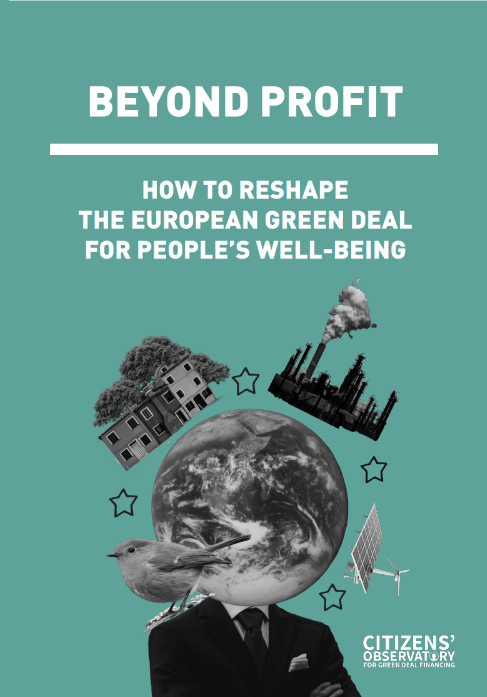
EU elections
In June 2024, EU citizens will have a chance to help shape the EU’s next five-year political cycle and determine Europe’s long-term future. Your vote in the EU elections is not only a vote for yourself, but also an expression of public participation in the decision-making processes that affect our daily lives.
Amidst pressing global challenges, in particular the urgent need to address climate change, voting in the EU elections becomes a crucial tool for advocating sustainable policies. The EU plays a key role in shaping environmental legislation, promoting sustainable initiatives and steering the region towards a more just future.
Voting for leaders who are committed to aligning EU policies with your values will ensure that our collective voice is strong on the issues that matter most. This is our chance to tackle climate change, prevent biodiversity loss, and deliver a transition that leaves no one behind.
Read more about EU elections and our priorities for a just and ecological transformation we want the EU’s new policies to embrace.
Check more about the EU elections in Bulgarian, Catalan, Estonian, Hungarian, Italian, Latvian and Polish here and here.
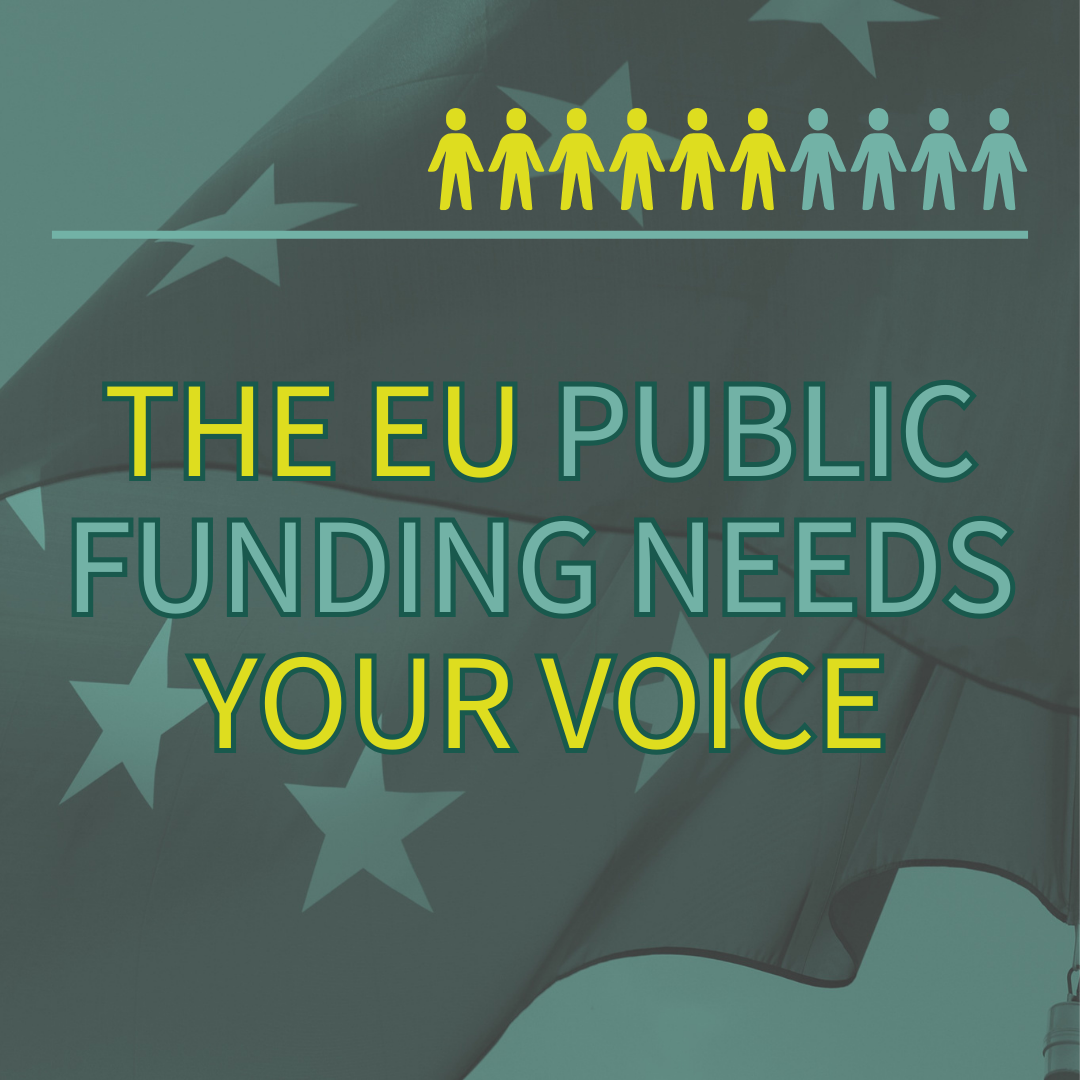
Manifesto on the future of EU public finances
Since the launch of the European Green Deal in 2019, its goals have proven more urgent than ever. However, four years after it was announced, we are not on track to adequately tackle climate change, prevent biodiversity loss, and deliver a socio-economic transformation that leaves no one behind, both in Europe and beyond.
Public investment has a crucial role to play in tackling the various crises we face today by prioritising what is not profitable now, but essential in the long term. The measures proposed below will ensure that public money gets to the places and people that need it most.
Read our priorities for delivering a just and ecological transformation.
This publication is also available in Bulgarian, Catalan (also longer version), Hungarian, Italian, Latvian and Polish.
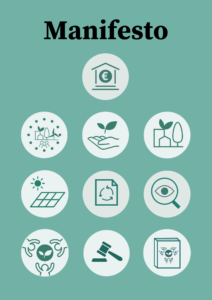
No recovery without citizens: why public involvement is key to Europe's green transformation
Huge amounts of EU funding have recently become available through the EU budget, the NextGenerationEU recovery package and the REPowerEU investment programmes. However, investment decisions are increasingly being made behind closed doors.
By excluding citizens from this transformative process, the EU risks funding investments that do not meet the objectives of the European Green Deal but exacerbate inequalities and compromise our collective efforts towards a green transformation.
The report No recovery without citizens: why public involvement is key to Europe’s green transformation highlights the urgent need for citizens’ involvement in the design and implementation of EU recovery funds and reveals how a lack of public scrutiny has led to harmful investments in seven EU Member States.
This publication is also available in Bulgarian, Catalan, Estonian and Spanish.
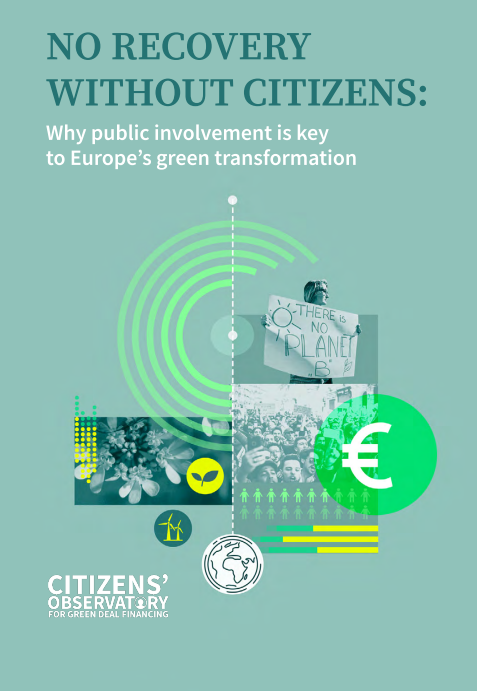
Virtual tours
The unsustainable breakwater in Genoa
Public funding: estimated EUR 1.5-2 billion
Concerns: poor consultation with citizens
Risks:
- Biodiversity – Mediterranean Sea ecosystem, Pelagos Sanctuary Reserve
- Climate – CO2 emission from increased traffic in the city of Genoa and the Mediterranean Sea
- Economic – high economic risk and cost of lost opportunity to invest in alternatives
- Other – negative impact on fishing, sea pollution, resources use
The breakwater is the foundation of the city’s port restructuring, designed to accommodate next-generation mega containers and cruise ships. The work has been divided into smaller infrastructure interventions; yet individual assessment of each project does not provide a clear understanding of the overall impact of the breakwater on the city, which includes traffic and pollution, nor the impact on the land, marine environment and climate.
The project’s environmental studies appear incomplete and fail to consider the project’s interaction with the Mediterranean’s currents. Instead, the studies analyse only the immediate area surrounding Genoa. Yet the construction would jeopardise the equilibrium of the Pelagos Sanctuary, a key area for the protection of dolphins, whales and seals.
The breakwater is a huge waste of public money – EUR 2 billion, with some of the funds coming from Italy’s recovery and resilience plan – but it is also a technical risk. Not only have local committees and activists voiced their concerns, but experts have also done so: engineer Piero Silva, former technical director of the project for RINA Consulting, resigned in 2022, declaring that the project is unsustainable from every perspective – from the geotechnical to the economic.
To learn more, watch ReCommon’s video.
Uncovering the green transition: The impacts of the EU transition and green extractivism
The twin transition, green and digital, is being put forward within the European institutions as a central solution to combat the climate emergency. This technology-based transition – renewables, electric vehicles, green hydrogen, digitalisation – requires critical and strategic materials that are spread around the world. These materials are found in territories such as the high Andean salt flats between Bolivia, Argentina and Chile for lithium, the Katanga region in the Democratic Republic of Congo for cobalt, the Palawan archipelago province in the Philippines for nickel or Bayan Obo in China’s Inner Mongolia for rare earths, among many others.
Public funding: In Spain, for example, the Strategic Projects for Economic Recovery and Transformation (PERTE) that have received the most money to channel funds from the Recovery, Transformation and Resilience Plan through the Recovery and Resilience Facility are microelectronics and semiconductors, renewable energies, renewable hydrogen and storage, and PERTE for the development of electric and connected vehicles. All of them are highly demanding of critical raw materials.
Concerns: Some territories and specially, sacrifice zones are being impacted by extractivist dynamics.
Risks: The growing demand for critical transition minerals is causing disruption to ecosystems, territories and populations affected by extractivism that now carries the adjective ‘green’. Transition cannot focus only on technological solutions for the Global North. Just eco-social and eco-feminist transitions are needed for the entire globe.
Uncovering the green transition: Hydrogen, the big player
In the desire to decarbonise the economy and production, there is one element that resonates above all else: green hydrogen. In order to develop it, the aim is to reproduce the same transport and consumption model as with fossil gas and, for this reason, the European Union, the Spanish state and countries of the Global South have developed their roadmaps to make hydrogen a reality. The European Union, for example, presented H2Med, a green hydrogen corridor to enable hydrogen transport from Spain to Portugal (H2Med-CelZa) and France (H2Med-BarMar).
Furthermore, with the idea of continuing to meet the current demand for fossil gas with hydrogen, the European Commission is looking beyond the European continent. Chile is one of the countries that has defined itself as a strategic partner to carry out the energy transition in the European Union and has a national roadmap for the development of green hydrogen. This will be used for decarbonisation of the mining sector and for export, and international investment funds and European fossil and energy companies will play a relevant role.
Public funding: Both because of the European green transition and the need to break energy dependence on Russian gas, the European Union has created public funds and mechanisms that can finance projects for hydrogen production and transport. This has meant that in recent years, energy and fossil fuel companies such as Repsol, Iberdrola, Enagás, among others, have been lobbying for the development of hydrogen, promoting old gas infrastructures to transport hydrogen.
A 4 million project to promote green hydrogen in Chile is also planned through the Global Gateway.
Concerns: In Chile, green hydrogen projects pose a threat to the way of life of the indigenous communities, in this case the Chango people who live in the coastal villages, as they are mainly engaged in fishing and seaweed gathering. Already with the installation of thermoelectric plants two decades ago, they have seen how the desalination process alters marine ecosystems and increases marine and air pollution, putting their health at risk as well.
The production of green hydrogen requires the consumption of significant amounts of water and energy.
Risks: It is not proven that hydrogen – whether green or not – can be transported over these long distances.
The promotion of large infrastructures implies the continuation of a centralised energy model with large production centres and the transport of energy to large consumption centres. The continuity of this big-big-big model (big companies making big investments) hinders the progress towards energy sovereignty and a decentralised energy model, which is more democratic and sustainable.
Uncovering the green transition: Where are care and feminisms in this transition?
Across Europe, public services are being progressively dismantled in favour of large private companies. Privatisation, rather than being reversed, is being deepened by the EU’s recovery and transition plans. The Strategic Plan for Economic Recovery and Transformation (PERTE) Salud de Vanguardia, is of one of the mechanisms for channelling Next Generation funds in Spain. The Salud de Vanguardia PERTE is an example of how, through large public-private partnerships (PPPs), digitalisation and technological modernisation are being presented as the solution to all crises (including the care crisis).
Concerns: The PERTEs are not committed to guaranteeing basic rights, nor do they recognise the urgency of dignifying jobs that are essential for the reproduction of life; and meanwhile, new debt mechanisms are being created that will mean more cuts in public services.
Risks: Feminisms have long warned of the need to prioritise the reproduction of life over economics, for example by defending public services and the commons, a choice that became evident during the confinement, but was soon left behind.
New Energy
In Poland, there are currently only six registered energy cooperatives. Two of these are operational. And although citizens are enthusiastic about community energy, bureaucracy and outdated energy grids result in many of these projects being put on hold.
Our video – New Energy – showcases the pioneers who are paving the way for Polish energy communities. While some have already established energy cooperatives, others are just starting out. But in seeking financial support for their investments, they face an uphill task navigating the bureaucratic and legal obstacles that stand in their way.
Despite these challenges, energy communities remain committed to developing a decentralised, renewable, clean and efficient energy system with citizens at its core. They provide a fantastic opportunity to transform the European energy system and make it more resilient.
But they can’t do it all on their own. EU funds have an important part to play in unlocking the potential of these communities. But to be effective, they need to be complemented by legal changes and energy grid investments.
Energy communities have shown just how important they can be in driving the transition to renewable energy sources. But they’re also having a real social impact by tackling issues such as energy poverty. When determining the financial support they give to energy communities, the Polish authorities should take their many benefits into account.
For inspiration, watch Polish Green Network’s video.
Garden of Eden or desert? Water retention in the Great Hungarian Plain
Europe’s 2022 drought demonstrated what experts have known for years – that the continent’s next crisis will be lack of water. Ill-considered water management practices, damming, irrigation, and overuse of subsurface water have damaged entire landscapes.
Two hundred years ago, roughly a fifth of Hungary was wetlands. But over the past century, these habitats have been drained and converted into arable fields for food production. Droughts are becoming more frequent, and experts agree that irrigation is not an appropriate way to tackle water scarcity at the landscape level.
The will and financial resources to reverse the desertification of Central Hungary and address summer droughts are available. But damming the rivers, pumping, water retention, wetland restoration, rainmaking – which solutions are truly effective?
Public funding: As a part of Hungary’s recovery and resilience plan, water management developments are taking place in the desertifying area of the Homokhátság (Sandy Ridge) between the Danube and Tisza rivers. The plan allocates EUR 117 million for this investment, and even more is planned to come from other EU funds.
Risks: The planned investments fail to tackle the root causes of the situation, and how some of the planned infrastructure (pumps) will be used is ambiguous. These pumps will be suitable for transferring water to wetlands as well for irrigation; but irrigation infrastructure has a lock-in effect for farmers, delays land-use change and favours big agricultural companies instead of small-scale agriculture.
To learn more, watch MTVSZ’s video.
Investments outrunning reforms: has Bulgaria been successful in tackling energy poverty?
Despite the availability of EUR 5.69 billion, some of the reforms planned in Bulgaria’s recovery and resilience plan have not been implemented yet, raising concerns about the effectiveness of investments. The implementation of investments precedes the implementation of reforms, which should ideally go hand in hand.
One critical area that has been neglected is the reduction of energy poverty. The current investment programme excludes energy-poor households for several reasons. First, initial investment costs for equipment make it unaffordable for those that fall under the definition of energy poverty. Second, there is no prioritisation based on income criteria, meaning only higher income groups can benefit from the programme. Additionally, inadequate information campaigns and complex application procedures hinder the participation of those in need.
Additionally, there is no regional distribution or consideration of specific regions with higher levels of energy poverty. The programme also overlooks the potential for prosumerism and energy communities, preventing multiple households from benefiting collectively.
To improve the situation, it is crucial to include energy-poor households and conduct targeted information campaigns. The programme’s tranches can be expanded to include lower income groups, with a focus on simplifying the application process. Embracing prosumerism and allowing connections to the electricity grid for photovoltaic systems would align with EU policies.
By addressing these issues and ensuring a synchronised approach between investments and reforms, Bulgaria can make significant strides in combatting energy poverty and create a sustainable future for all its citizens.
To learn more, watch Za Zemiata’s video.
Biodiversity and renewable energy: what can go wrong?
In Estonia, the renewable energy transition has long been hindered by political inaction, largely because previous governments lacked the political will to take the necessary steps to develop the country’s massively untapped solar and wind potential. Not a single wind farm with more than three turbines was built in the past decade.
Now the energy crisis has finally forced decision-makers to take action, with plans underway to speed up the permitting process for wind farms. But while the transition to renewables is welcome, it is equally important to prevent the damage to nature that can occur when long-needed policy reforms are drawn up in haste. Ecosystems and biodiversity must not be sacrificed in the rush towards carbon neutrality.
Public funding: In 2022, the European Commission launched REPowerEU, its plan to end the EU’s dependence on Russian fossil fuels and accelerate the transition to renewable energy. Under this initiative, Estonia has earmarked EUR 31.8 million to streamline the permitting process for renewable energy projects. This involves revising existing laws to shorten procedures related to spatial planning, permit applications and environmental impact assessments. Additionally, a new draft bill has been proposed to fast-track wind energy developments and the process of selecting optimal areas for construction. Considering Estonia’s updated target to cover its annual consumption with 100 per cent renewable electricity by 2030, this new reform has taken on added significance.
Risks: Amid the rapid deployment of renewable energy solutions, it is crucial to enhance measures aimed at protecting biodiversity. Under the new reform, which can no longer be rescinded, the process of selecting optimal sites for wind farms has already begun. One major concern is the proposal to offset any potential deforestation through a fee that will be used to plant trees elsewhere. Another is the possibility that decision–makers, fearing opposition from local residents, may push for wind turbines to be located in less populated, ecologically sensitive areas.
To learn more, watch Estonian Green Movement’s video.
Melita, the unjust pipeline
Public funding
EUR 400 million from the Connecting Europe Facility
Concerns
The Melita TransGas pipeline, stretching 159 kilometres, is slated to connect Malta with Sicily. The Maltese government argues that the project is needed to end the island’s energy isolation and prepare for the transport of blends of natural gas, biomethane and hydrogen. But the project is hugely controversial.
First, there’s no further need for gas infrastructure in Europe. Second, there’s no guarantee that hydrogen will ever flow through Melita once it’s built. Third, the pipeline is linked to Electrogas, a company embroiled in a number of ongoing corruption and bribery cases. Finally, a recent environmental impact assessment found that the seabed of Sicily’s Gela harbour, a section of the planned pipeline, is heavily polluted with radioactive materials.
Risks
There is a risk that the pipeline will further lock Malta and Europe into climate-wrecking fossil fuels for many years to come. At least 35 years, according to the developers!
The pipeline is expected to transport two billion cubic metres of methane gas per year to Malta.
To learn more, watch ReCommon’s video.
Give rivers space: towards sustainable flood prevention
Latvia is rich in water, with more than 12,000 rivers and 2,200 lakes. However, where there’s water, there’s also the risk of flooding.
Under the worst climate change scenarios, the financial losses caused by flooding in the EU could increase by up to sixfold. In addition, the number of people affected by floods could triple to half a million each year.
In Latvia, as elsewhere in Europe, most of the floodplains adjacent to rivers and lakes have been drained, with rivers straightened to accommodate intensive agriculture, forestry and housing.
Latvia is currently using EU funds for large investments aimed at reducing flood risks. For instance, renovating polders and pump stations and redigging multiple regulated, slow-flowing stretches of rivers.
To modernise its flood mitigation practices, Latvia needs to integrate green infrastructure and recognise the value of floodplains and other wetlands as natural retention areas. So what eco-friendly solutions is the country now exploring? And will they help to restore the country’s landscape, benefit nature, improve water quality, and reduce the risk of flooding?
Watch Green Liberty’s video to find out:
News and events
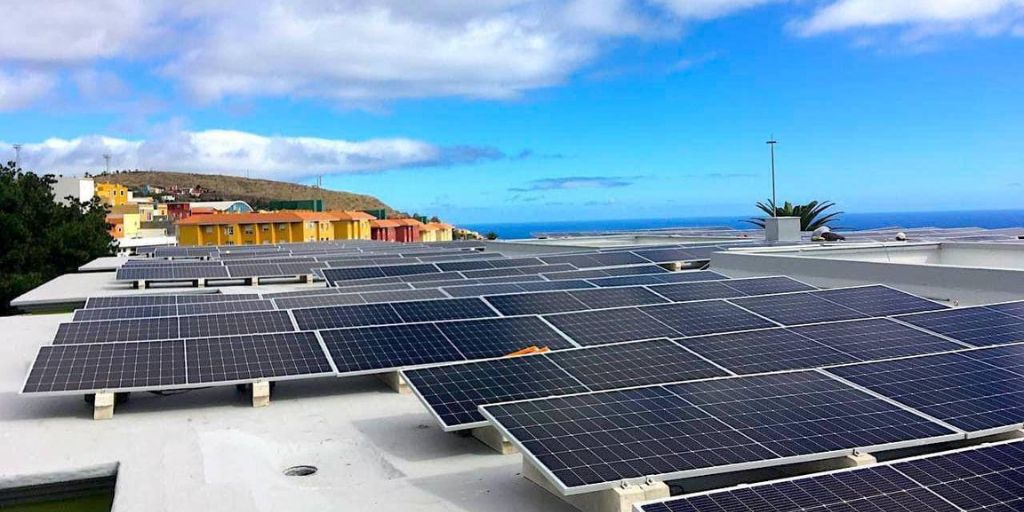
La Fábrica Bonita
Event | 12 July, 2024La Fábrica Bonita is a collaboration agreement between Energía Bonita, the energy community of the island of La Palma (Canary Islands) and the Collettivo di Fabbrica, a workers’ cooperative in Italy, which is trying to transform a former car factory in
Read more
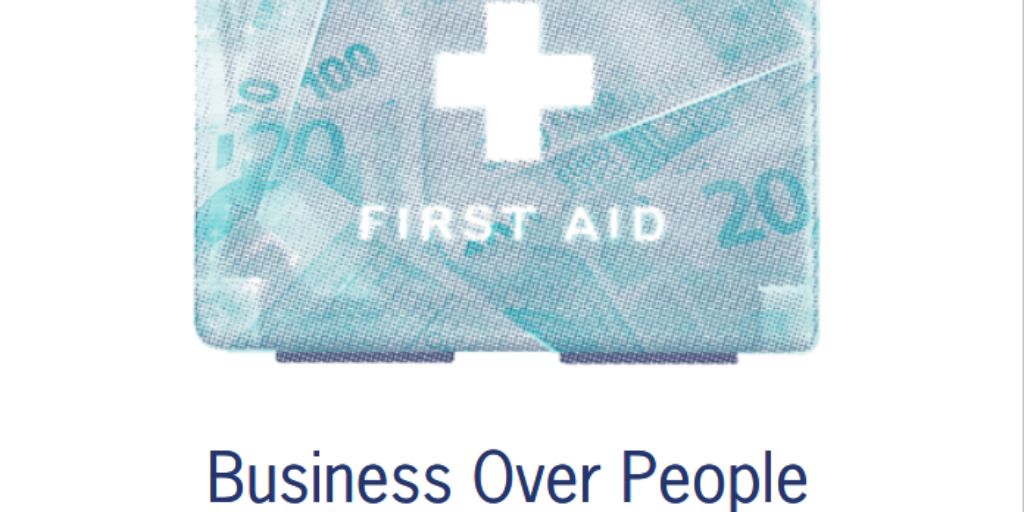
Report ‘Business Over People. A critical analysis of public financing for COVID-19 and cost of living crisis responses in France, Spain and Belgium’
Event | 6 June, 2024‘Business Over People. A critical analysis of public financing for COVID-19 and cost of living crisis responses in France, Spain and Belgium’ by the European Network of Corporate Observatories (ENCO) Public funding is a political choice, and these poli
Read more

Social cooperative as an energy cooperative: Legal and financial aspects of the operation
Event | 18 March, 2024Date: 18 March 2024 The webinar ‘Social cooperative as an energy cooperative: Legal and financial aspects of operation’, organised by the Polish Green Network, the Polish National Association of Social Cooperatives’ Revision and the Habitat for Humanit
Read more

Forum Green Horizons – why European elections are important for Bulgaria
Event | 27 March, 2024Date and place: 27 March 2024 – Sofia, Bulgaria Za Zemiata organized a forum emphasizing the importance of voting in the European Parliament elections with representatives from various political parties. There were 9 panelists from 5 political parties,
Read more

Workshop ‘Revision of the National Recovery Plan’
Event | 27 March, 2024Date and place: 27 March 2024 – Warsaw, Poland On 27 March 2024, the Polish Green Network and the Reform Institute jointly conducted a workshop entitled “Revision of the National Recovery Plan”. The aim and topic of the workshop was to discuss the cha
Read more
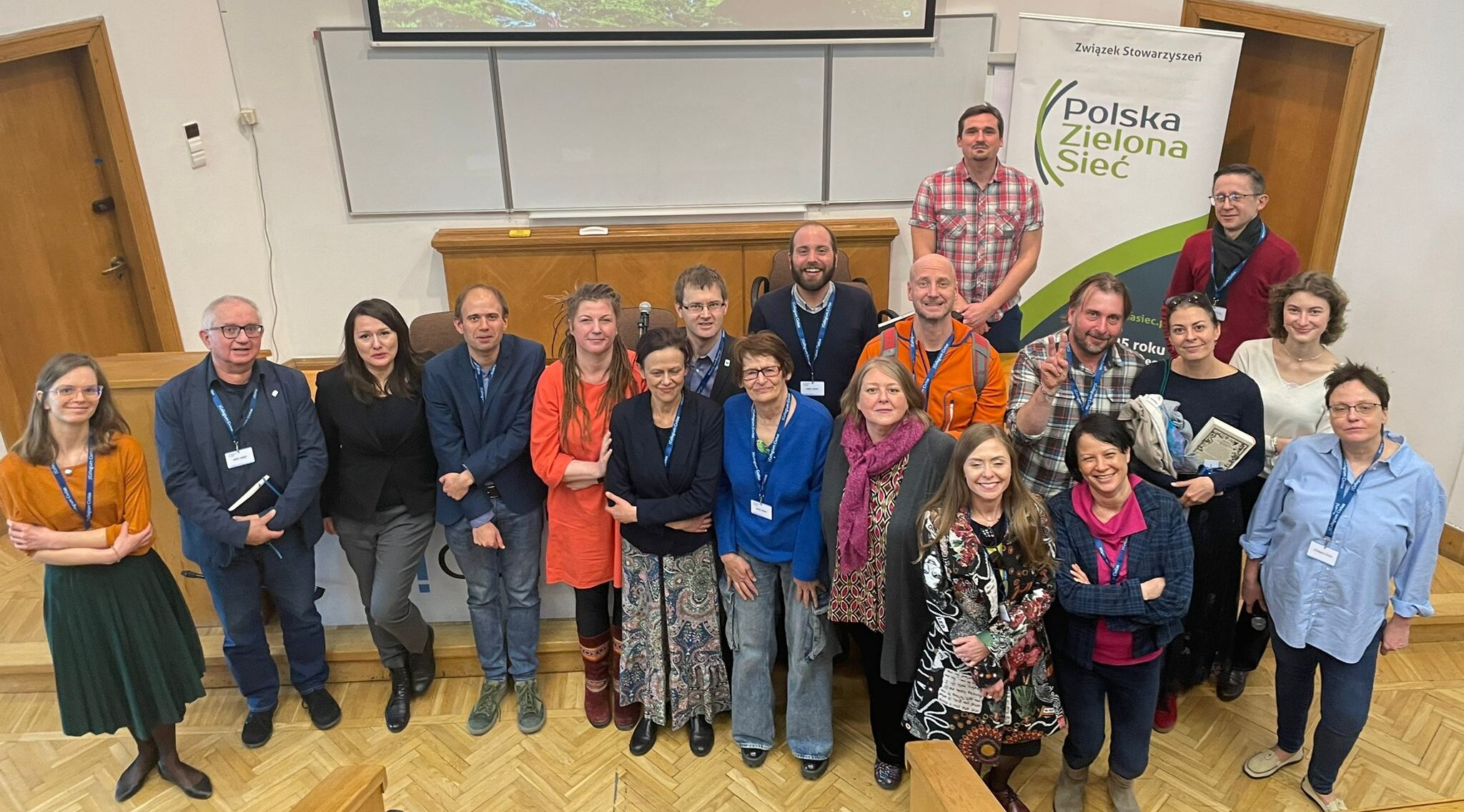
Debate on EU environmental policy at Collegium Civitas
Event | 21 March, 2024On the first day of spring, 21 March 2024, at the Collegium Civitas University in Warsaw, the Polish Green Network organised a debate on EU environmental policy. Our debate was set against the backdrop of the current turbulent events surrounding nature
Read more
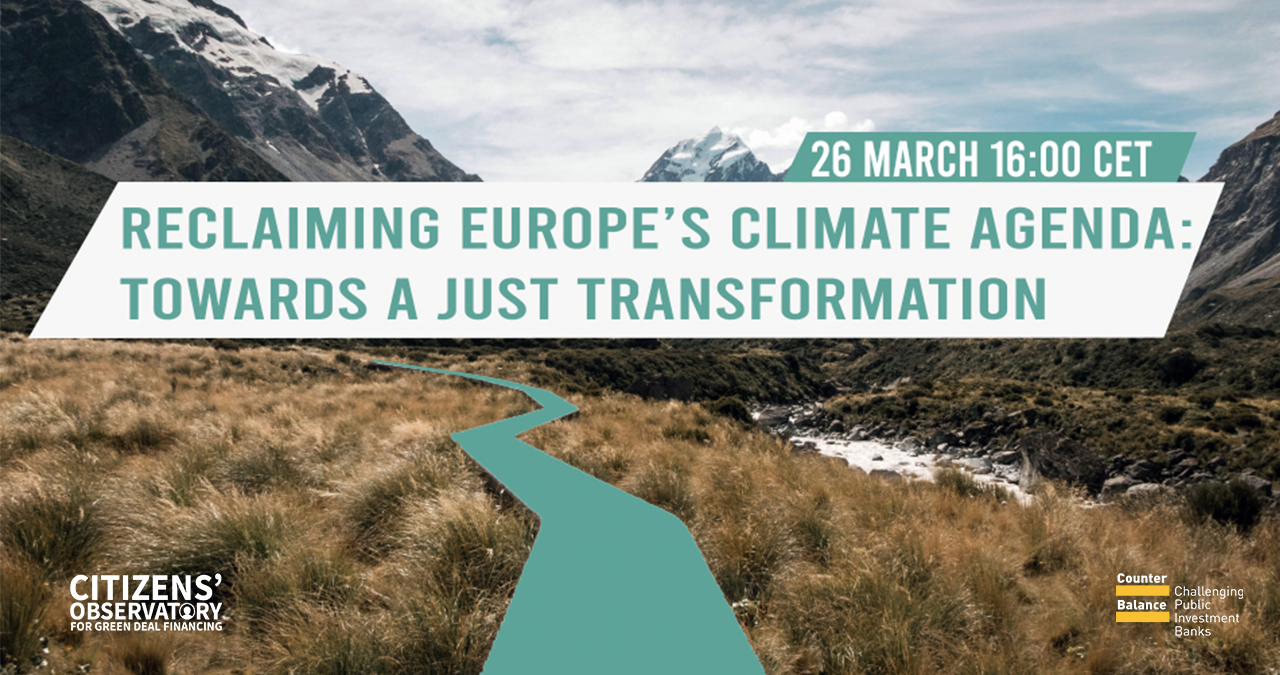
Reclaiming Europe’s climate agenda: Towards a just transformation
Event | 26 March, 2024In this webinar, Counter Balance will bring together CSOs and experts to collectively explore the biggest obstacles to financing a people-centred Green Deal, and how we can join forces to push these needs to the top of the public finance agenda.
Read more
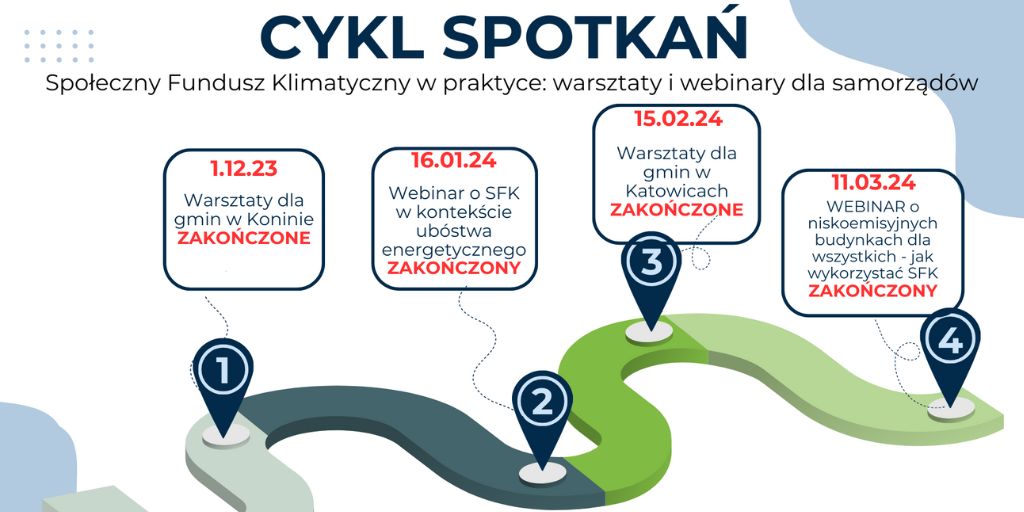
Webinar ‘Low-carbon buildings for all – how to use the Social Climate Fund?’
Event | 11 March, 2024With the webinar that took place on Monday, 11 March 2024, we ended a 2-part block of online events dedicated to the Social Climate Fund. The first part took place in January and was an introduction to the topic. We presented the context of the EU’s cl
Read more

Environmental Impact Assessment training sessions
Event | 1 March, 2024EIAs are a way for the public to become involved in monitoring projects and to allow their voices to be heard in a formal way.
Read more

Two online events with a focus on building renovation programmes and local heating and cooling plans to reduce energy poverty and move beyond solid fuel
Event | 14 March, 2024The two online events were attended by 79 people from 6 EU countries in total – citizens, energy office representatives, local authorities and the industry.
Read more
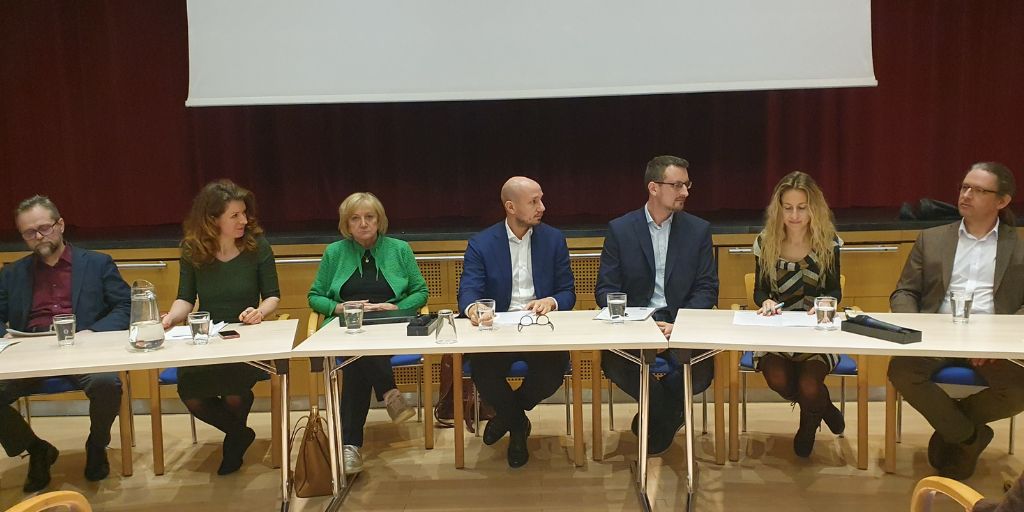
Biodiversity and climate policy conference in Hungary
Event | 12 February, 2024More and more people realise every day that the loss of biodiversity and the climate crisis not only threaten the life chances of future generations but also affect people today. EU policies have a significant impact on the environment. The National So
Read more
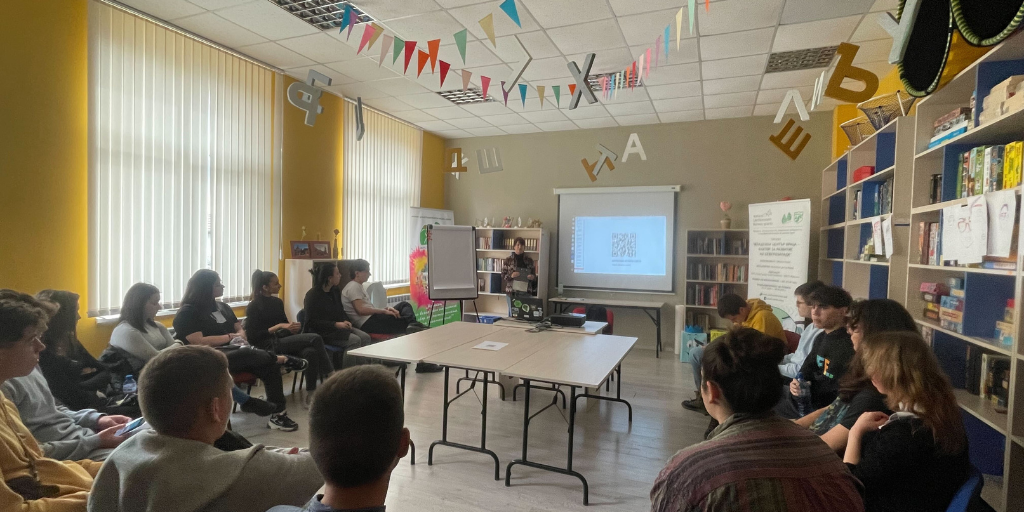
Simulation of EP decision making process and awareness raising on EGD goals
Event | 11 March, 2024Date and place: 23 February 2024 – Pernik & 11 March 2024 – Vratsa, Bulgaria Two workshops for youngsters were organised in cooperation with the Youth Centre Pernik – a coal dependent region and the Youth Centre Vratsa with the aim to promote activ
Read more
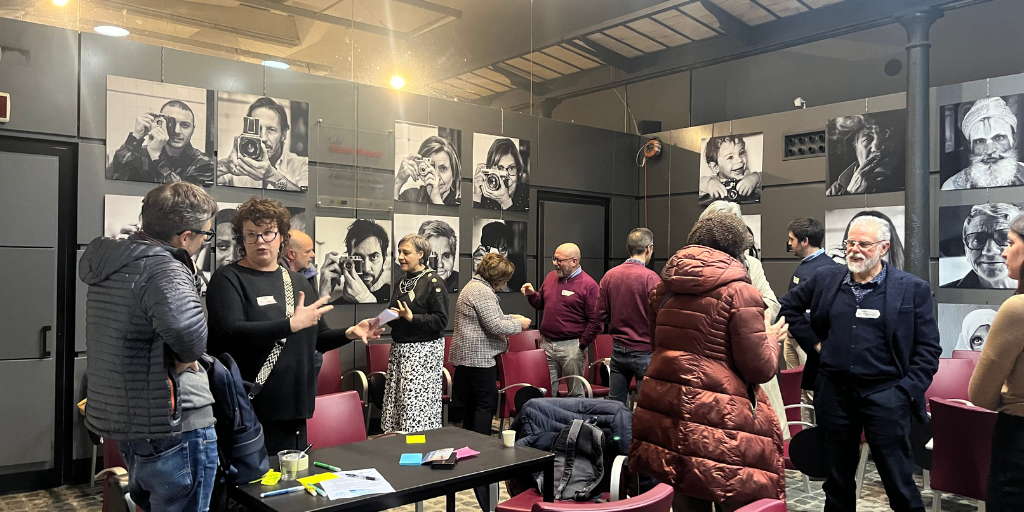
Discussions on the state of the European Green Deal implementation in Italy
Event | 10 March, 2024On 10 and 11 March, ReCommon organised two events in Rome to discuss the European Green Deal and how European funds contribute to the green transition in Italy, considering that Italy is currently receiving an unprecedented amount of funds from the EU.
Read more
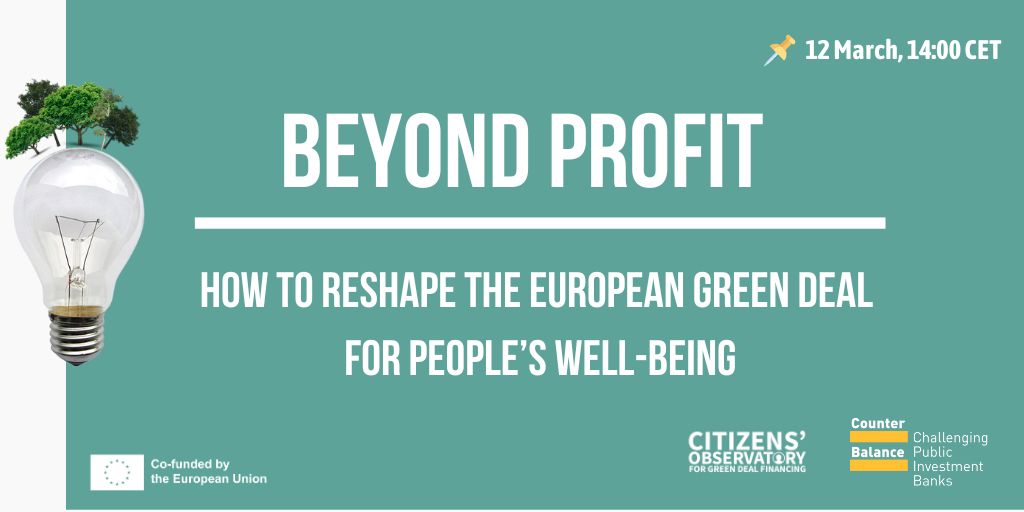
Report launch: ‘Beyond profit: How to reshape the European Green Deal for people’s well-being’
Event | 12 March, 2024We are pleased to invite you to our upcoming report launch where we will be presenting the latest report from the Citizens’ Observatory for Green Deal Financing, of which Counter Balance is a member.
Read more
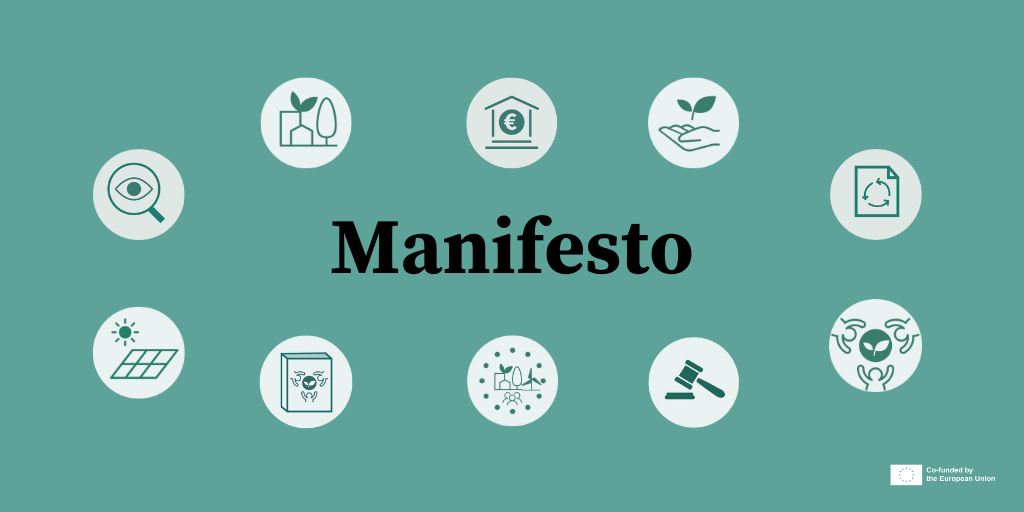
Webinar: Manifesto on the future of EU public finances
Event | 5 March, 2024On 5 March 2024, to close the series of webinars on EU public finance, a webinar aimed at presenting the Citizens’ Observatory for Green Deal Financing coalition´s vision of EU public finance, as contained in the manifesto on the future of EU public fi
Read more
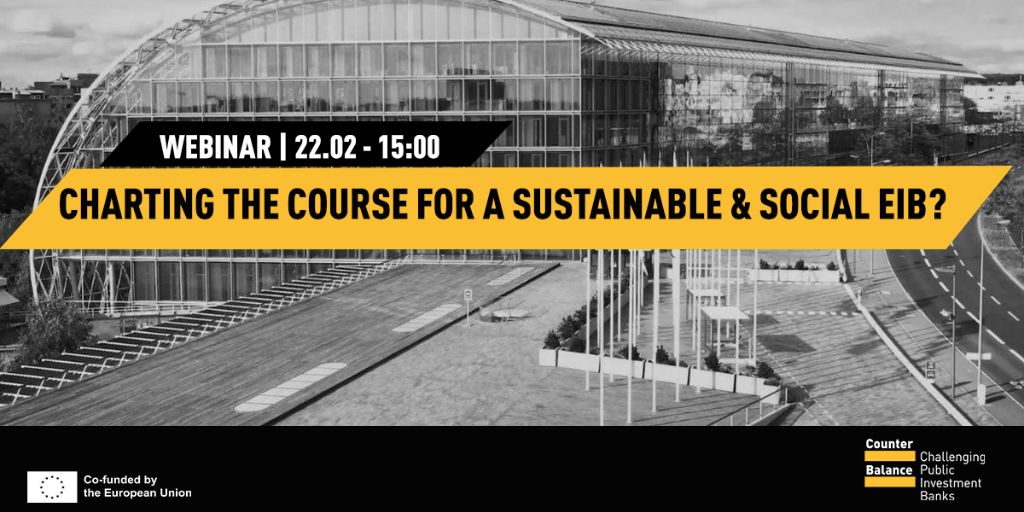
Webinar ‘Charting the course for a sustainable and social EIB?’
Event | 22 February, 2024On 22 February, Counter Balance hosted a webinar titled ‘Charting the course for a sustainable and social EIB?’. The webinar explored the operational landscape of the European Investment Bank (EIB) against the backdrop of a critical juncture marked by
Read more
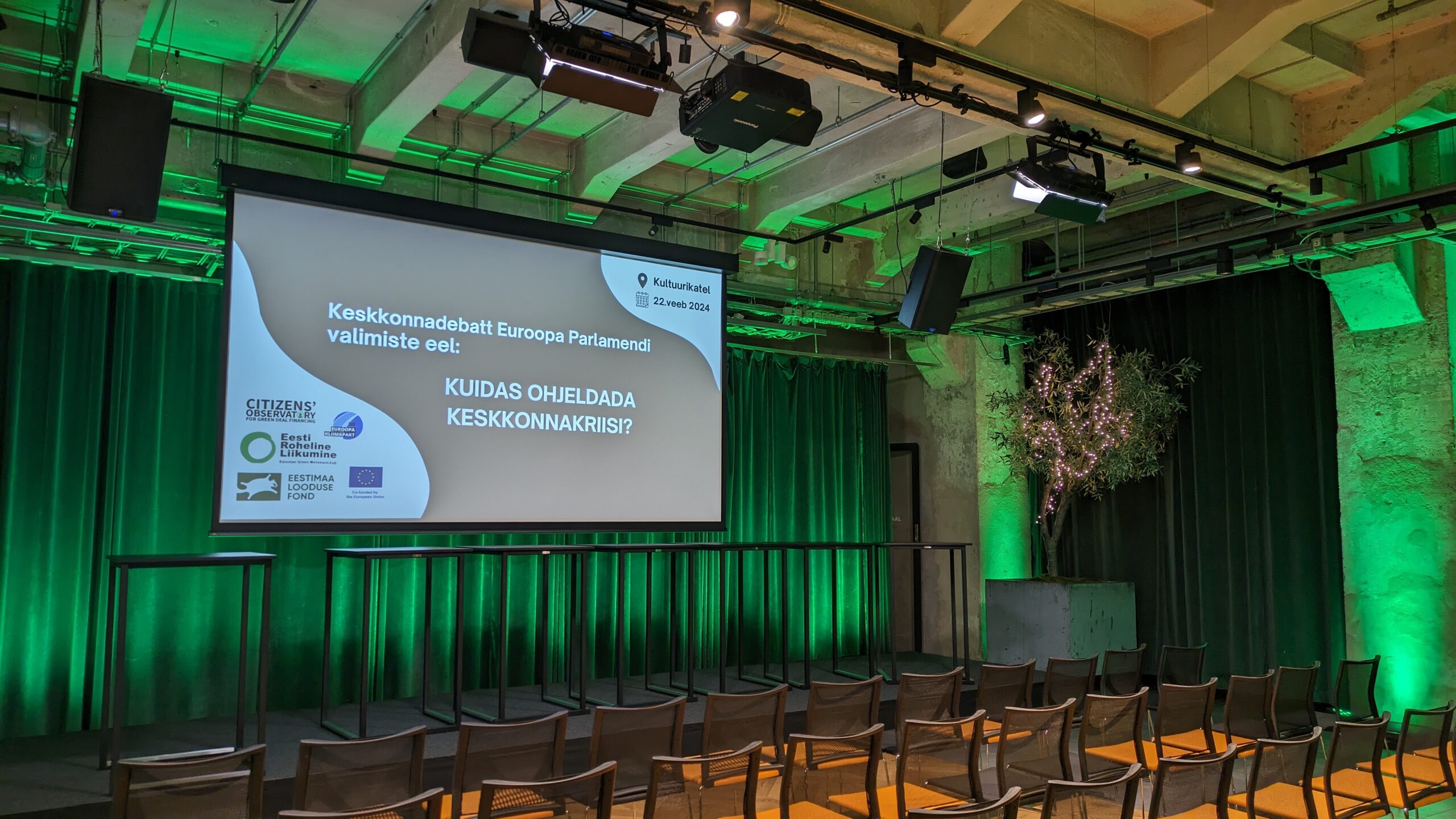
Environmental debate before the European Parliament elections: How to curb the environmental crisis?
Event | 22 February, 2024On 22 February, the Estonian Green Movement and the Estonian Fund for Nature organised an environmental debate before the European Parliament elections: ‘How to curb the environmental crisis?’
Read more
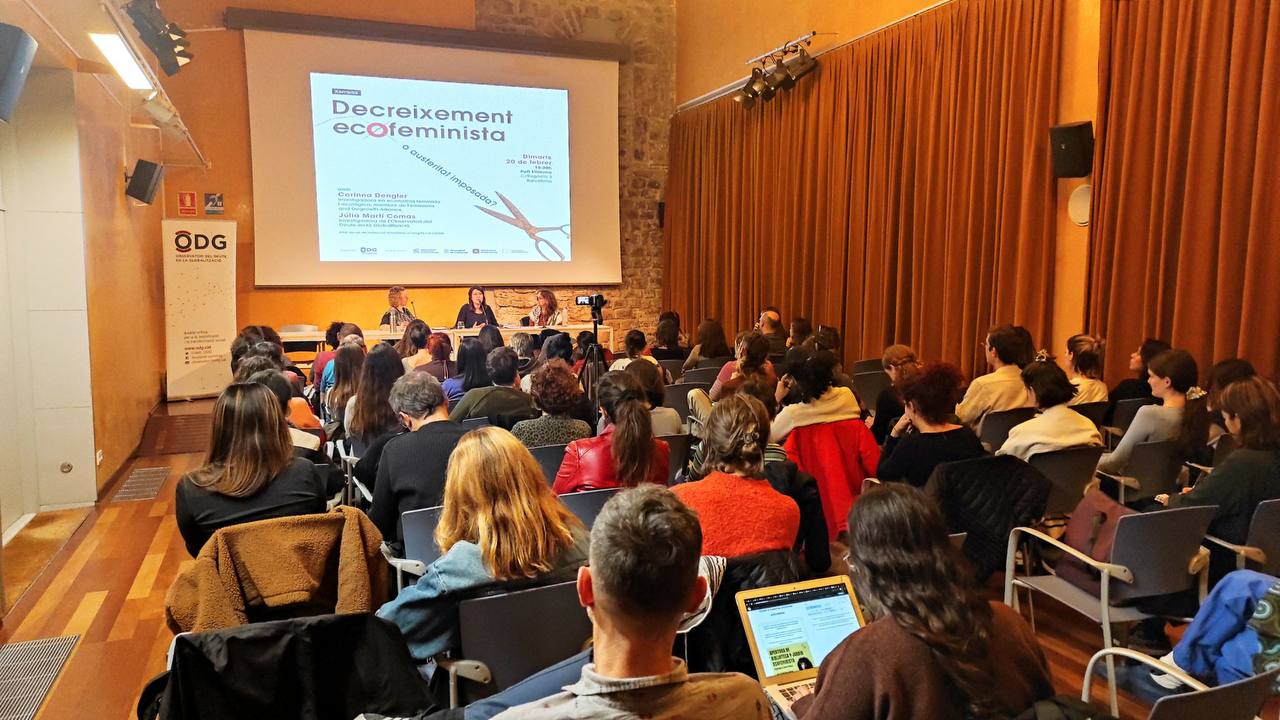
Ecofeminist degrowth or imposed austerity?
Event | 20 February, 2024On 20 February the Debt Observatory in Globalisation held a talk in Pati Llimona (Barcelona). Militaristic and securitarian tendencies and the bailout of transnational corporations through green capitalism are diverting public funds that could make an ecofeminist future possible.
Read more
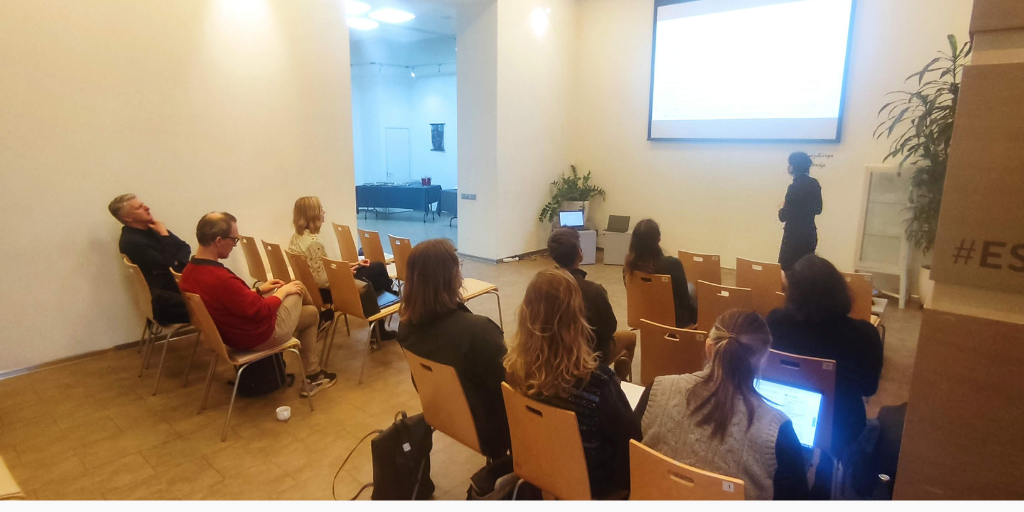
Green Barometer discussion and workshop “Getting ready for European elections
Event | 19 March, 2024On February 16, representatives of the participating organisations of the initiative “Green Barometer” from the society “Green Liberty”, the Latvian Fund for Nature and the World Wildlife Fund Latvia met at the EU house in Riga to prepare for the pre-election period of the European Parliament.
Read more

Silesia after coal: Workshop on social climate policy in the region
Event | 15 February, 2024The meeting ‘Silesia after coal: a workshop on social climate policy in the region’, jointly organised by the Polish Green Network and the BoMiasto Association, took place in Katowice on 15 February.
Read more
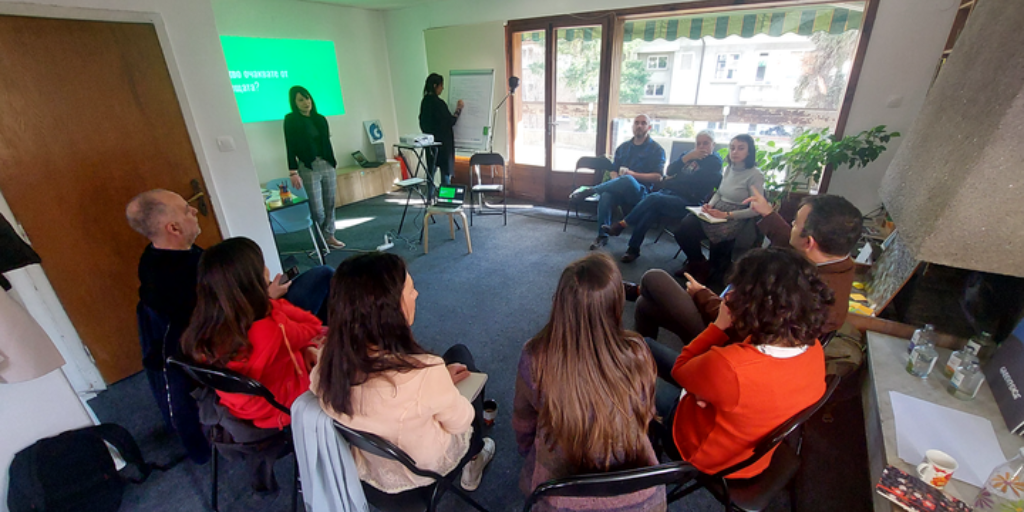
Coordination meeting of Bulgarian environmental NGOs regarding the EP elections
Event | 14 February, 2024With the approaching EP elections, aim of the first meeting of this work package was to align messages and activities around the approaching EP elections within the environmental NGO network.
Read more
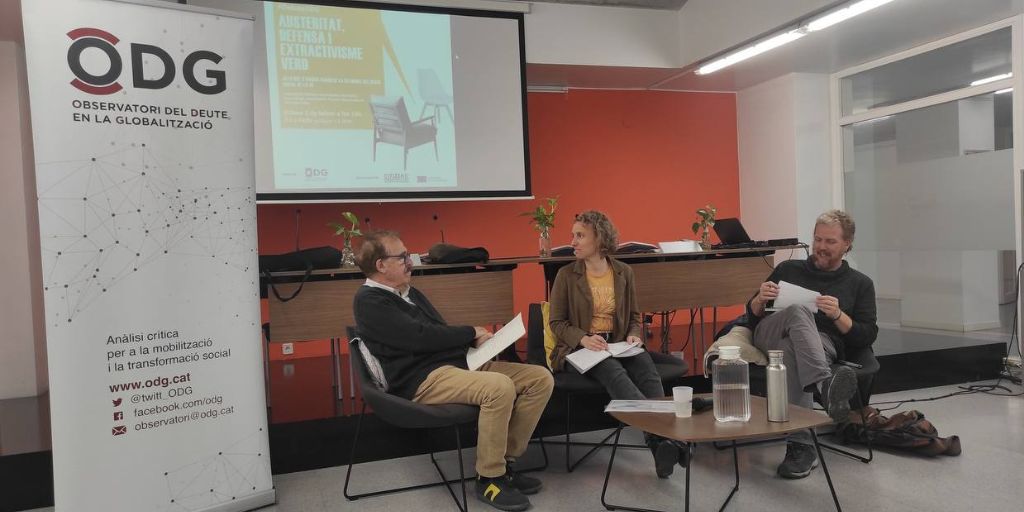
What lies behind the reform of the European Union’s fiscal framework?
Event | 5 February, 2024Date: Monday, 05 February 2024 Spain closed the EU presidency with an agreement of the Council of Economic and Finance Ministers: the reform of EU fiscal rules. In the context of approaching of the European elections, the Debt Observatory in Globalis
Read more
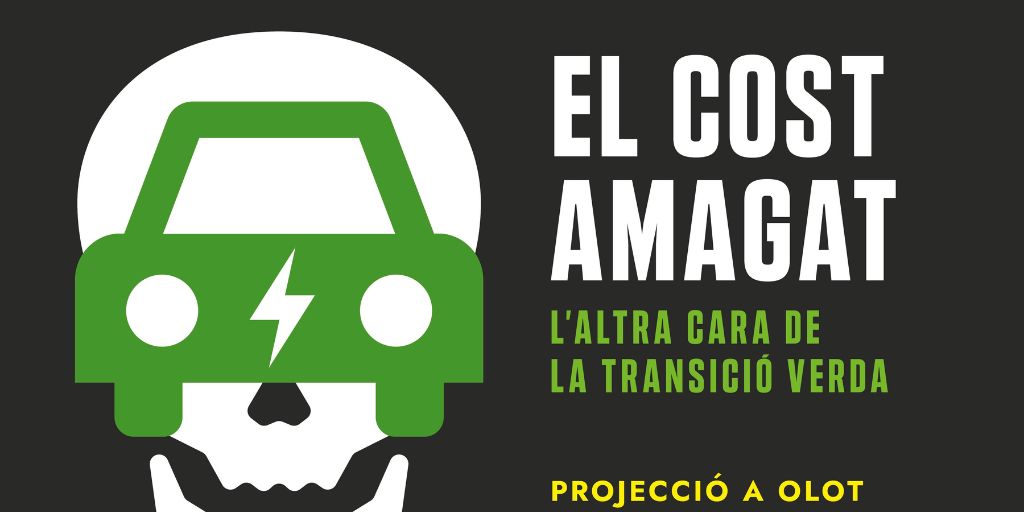
Cineforum I ‘The hidden costs of the transition’
Event | 16 December, 2023Date: Saturday, 16 December 2023 On 16th December the Debt Observatory in Globalisation held a cineforum altogether with Resilience Earth and a water’s and human rights defender in Colombia and Argentina. The aim was to discuss the impacts of the gre
Read more
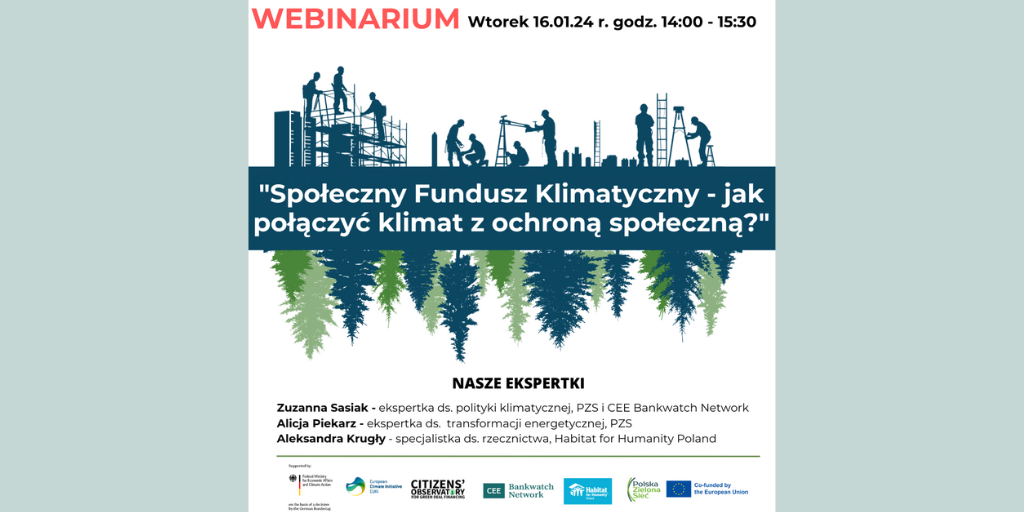
Webinar ‘The Social Climate Fund – how to link climate and social protection?’
Event | 16 January, 2024On 16 January 2024, the Polish Green Network and the Habitat for Humanity Poland held a webinar ‘Social Climate Fund – how to link climate and social protection?’. The topic of the meeting was the Social Climate Fund, which is one of the elements of the new iteration of EU climate policy and will be available to Poland and other EU member states starting in 2026.
Read more
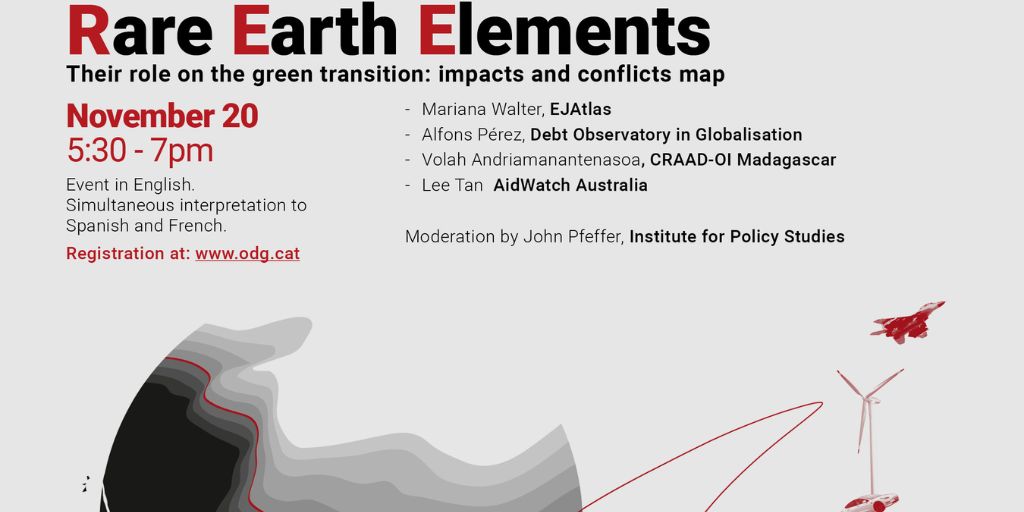
Rare Earth Elements: their role in the green transition
Event | 20 November, 2023On November 20, a webinar ‘Rare Earth Elements: their role in the green transition’ took place with the aim to present a map.
Read more
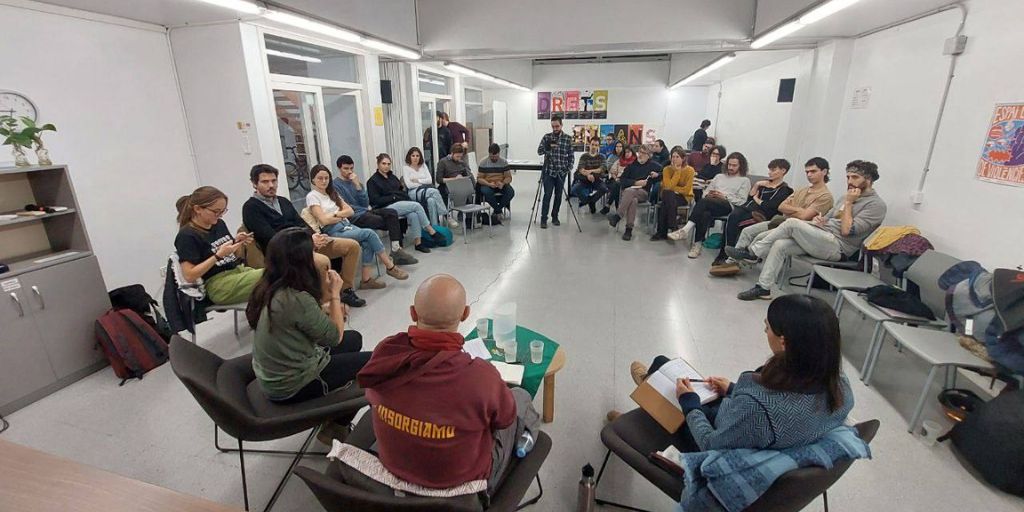
A conversation between the mine and the factory: alternatives to the extractive model of the green transition
Event | 12 December, 2023Date: Tuesday, 12 December 2023 On 12 December the Debt Observatory in Globalisation held an international meeting altogether with a frontline defender in Colombia and Argentina, and workers of Collectivo Di Fabrica, from Florence (Italy). The aim wa
Read more
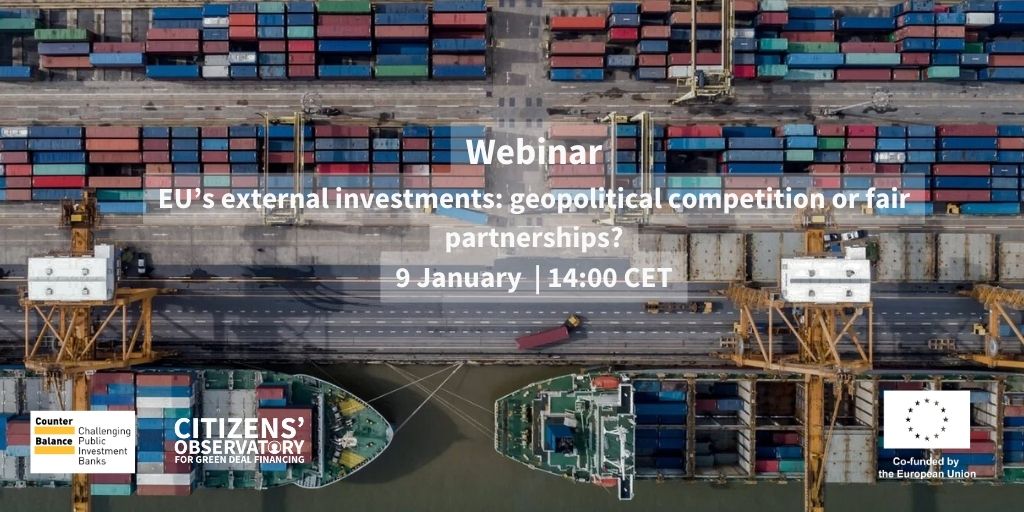
Webinar ‘EU external investments: geopolitical competition or fair partnerships?’
Event | 9 January, 2023Date: Tuesday, 9 January 2024 As a global actor, Europe puts emphasis on values like human rights, democracy, international rules and a just transition that leaves no one behind. But when it invests European money abroad, the EU often ignores its own s
Read more
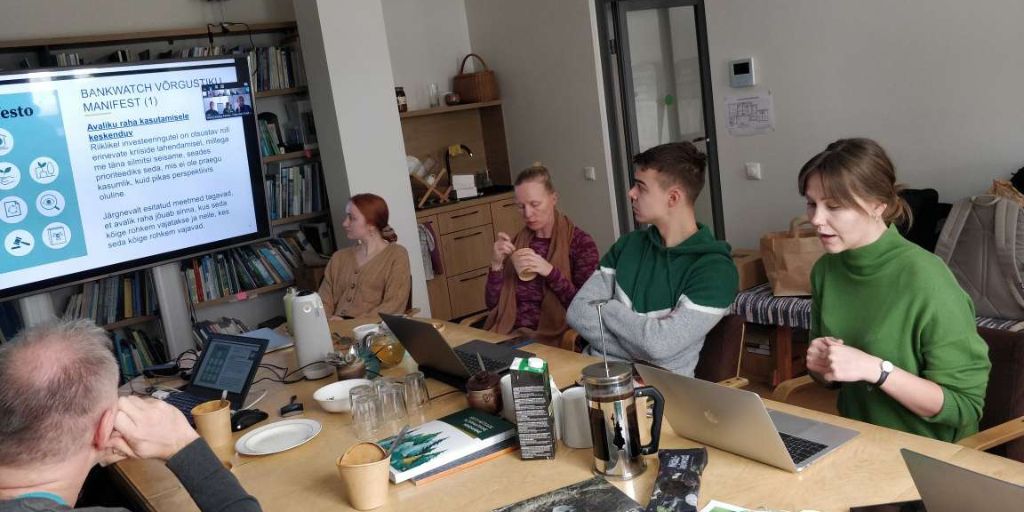
European Parliament elections manifesto workshop in Estonia
Event | 27 November, 2023On 27-28 November, Estonian Chamber of Environmental Associations’ (EKO) winter seminar took place in Vapramäe, Estonia.
Read more

Webinar ‘Green principles and hidden issues in the use of EU public funding’
Event | 28 November, 2023Date: 03 December 2024 Concluding the year of protection of environmental interests, Green Liberty held a webinar “Green principles and hidden issues in the use of EU public funding,” which will took place on November 28, 2023 online. During the webi
Read more

Workshop ‘Social climate policy and the development of municipalities’
Event | 1 December, 2023On 1 December 2023, a workshop ‘Social climate policy and the development of municipalities’ was held at the Konin Town Hall. The Polish Green Network and the Konin Agglomeration Association jointly organised the event.
Read more
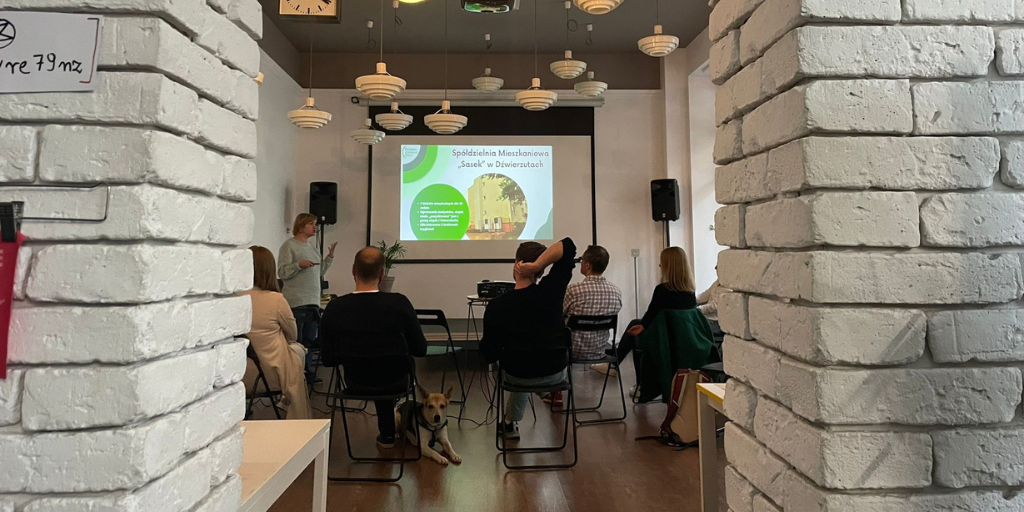
Workshop ‘Solar panels on the roofs of Warsaw blocks of flats – Why not!’
Event | 7 October, 2023Solar panels on the roofs of Warsaw blocks of flats? Why not! The workshop, which took place on 7 October at the Nest (Gniazdo) Centre for Climate Activism in Warsaw, focused on funding opportunities and different types of energy communities for the city.
Read more
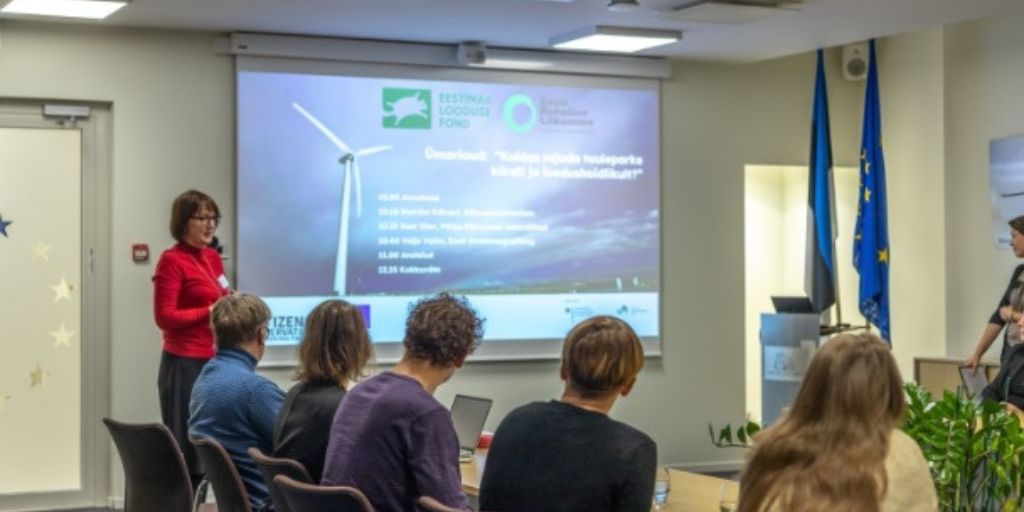
Roundtable ‘How to build wind farms quickly and without harming biodiversity at the same time?’
Event | 10 November, 2023On 10 November Estonian Green Movement and Estonian Fund for Nature organised a roundtable on renewable energy and biodiversity for representatives of municipalities, ministries and the European Commission.
Read more

Webinar ‘Europe’s Transport Infrastructure: the Role of EU funds for a sustainable connected transport’
Event | 13 November, 2023Europe’s trans-European transport network, or the TEN-T policy, has been promoted by the EU as a key instrument providing connectedness among EU countries with ‘coherent, efficient, multimodal, and high-quality transport infrastructure across the EU’.
Read more
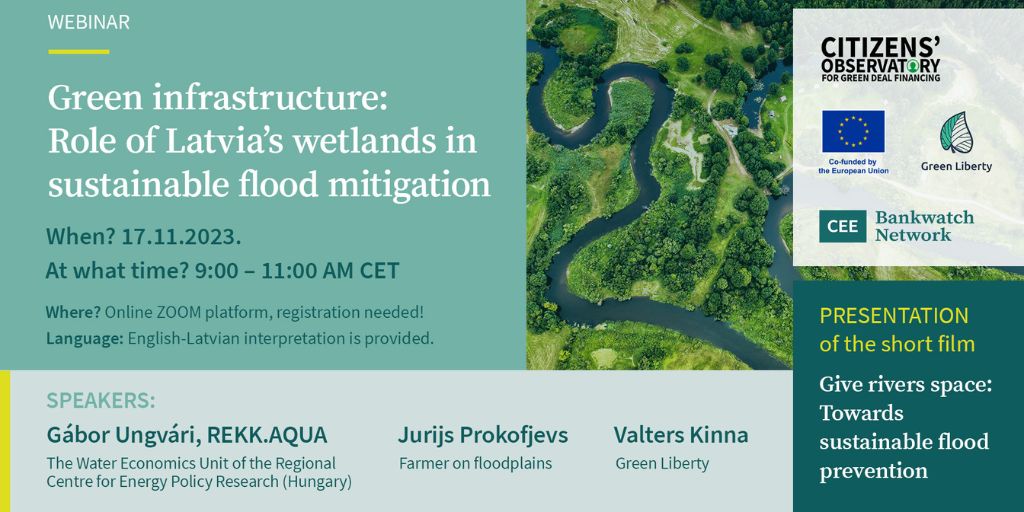
Webinar ‘Green infrastructure: the role of Latvia’s wetlands in sustainable flood mitigation’
Event | 17 November, 2023Although the value of floodplains, natural river meanders, and other wetland ecosystems is now more widely recognised as crucial for water purification and retention during flooding, many EU countries, including Latvia, face significant difficulties in integrating these natural assets into their water management and flood risk mitigation practices.
Read more
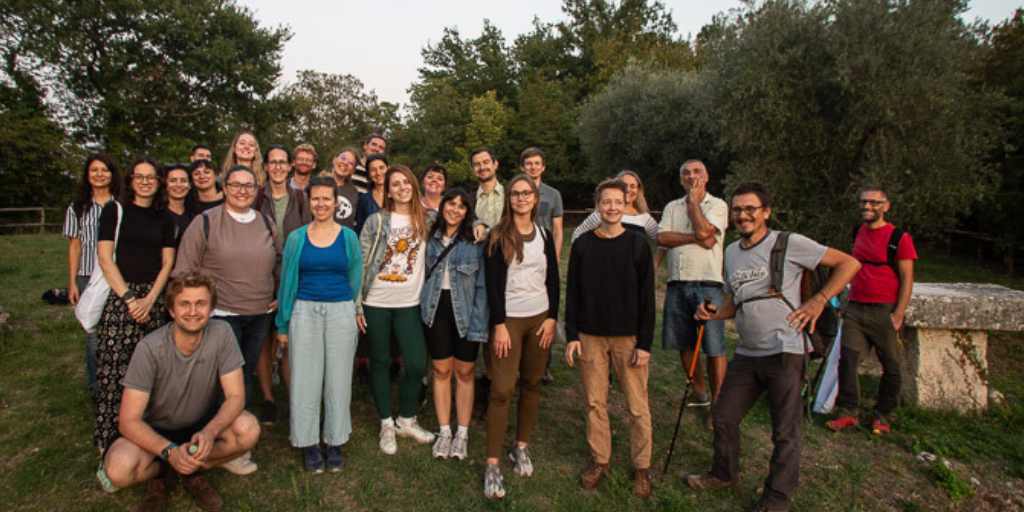
Citizens’ Observatory Forum
Event | 24 September, 2023The Citizens’ Observatory Forum was a meeting on the transformative Green Deal Financing that took place on 24-29 September 2023 in Collevecchio, Italy. Participants discussed and jointly worked on the manifesto for the next European Parliament and European Commission’s elections.
Read more
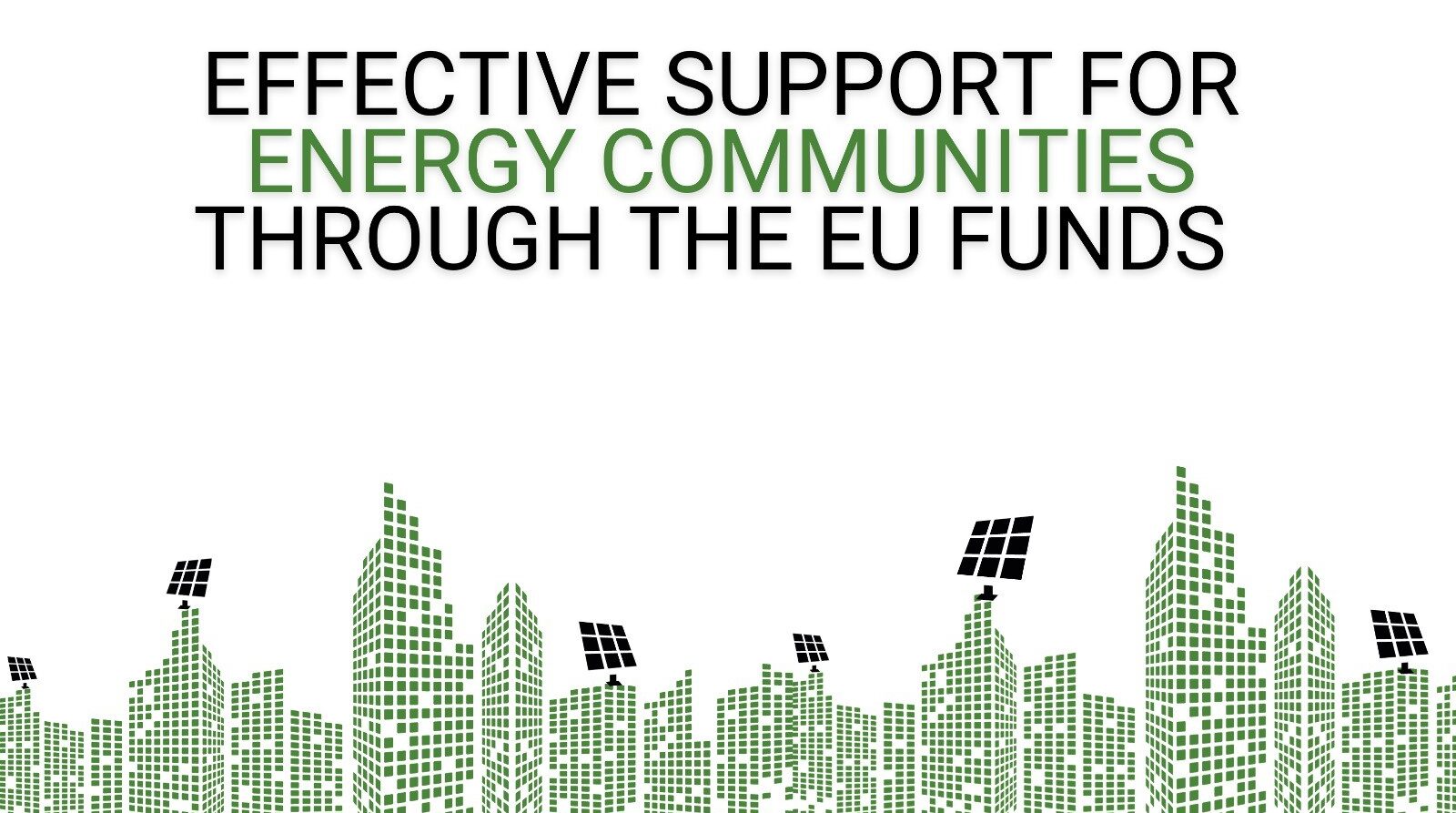
Effective support for energy communities
Event | 25 October, 2023CEE Bankwatch Network, Polish Green Network (PGN) and REScoop.eu organised a webinar on the selection criteria for energy communities to receive EU funding.
Read more
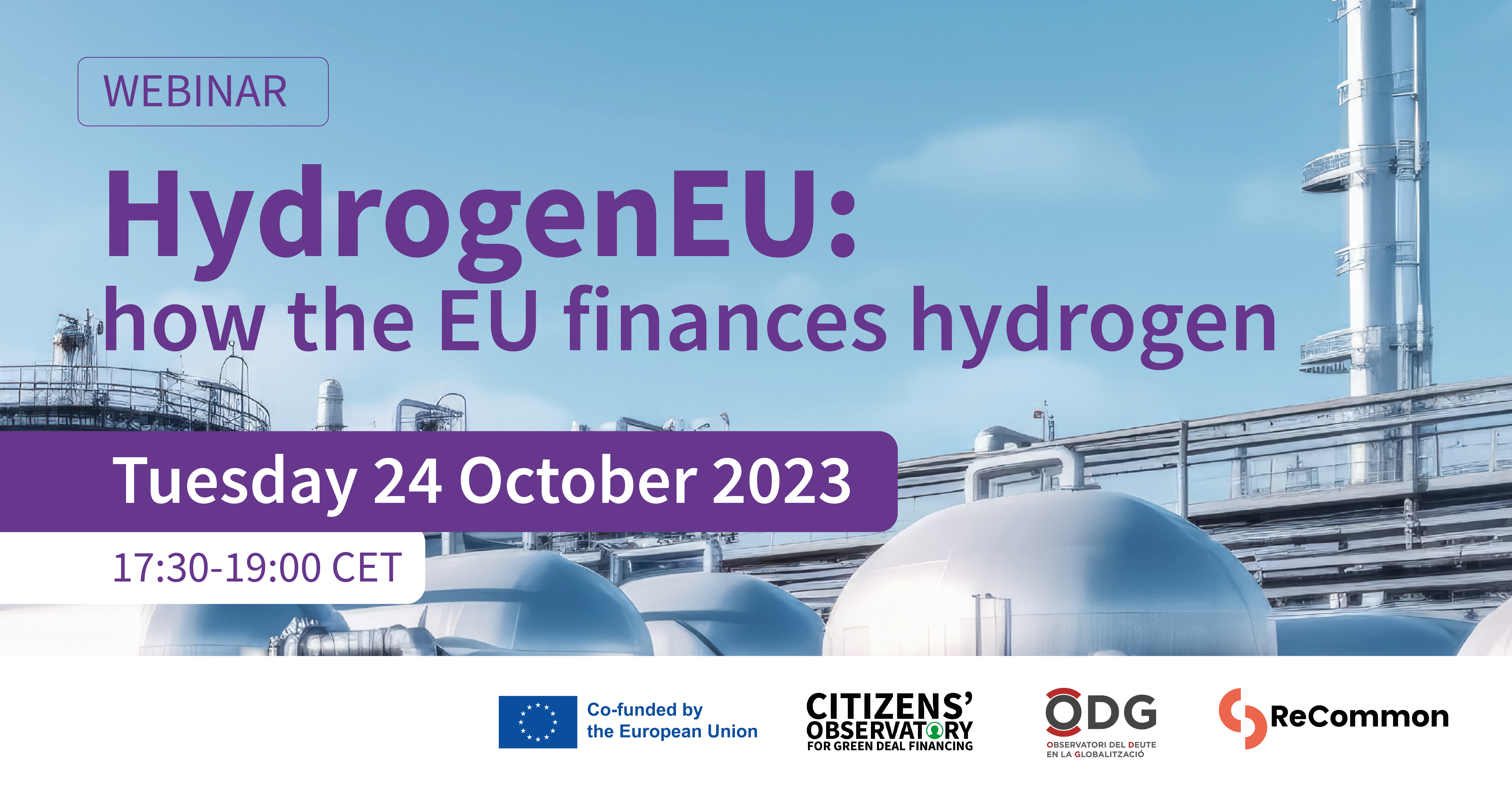
Webinar ‘HydrogenEU: how the EU finances hydrogen’
Event | 24 October, 2023In the third and final webinar in our series, we look at how the EU, blinded by the hydrogen industry’s close ties to the fossil gas sector, is providing regulatory and financial support to hydrogen projects, whether through new or existing EU funding streams, acquiring resources beyond the EU’s borders, or promoting the new wave of neocolonial extractivism.
Read more
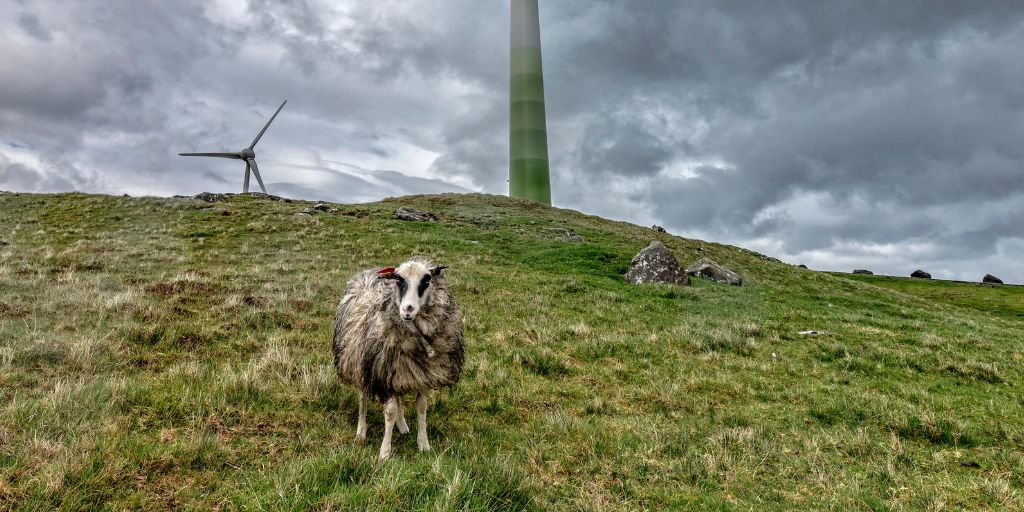
Webinar ‘Let’s talk about solutions – how could renewable energy and biodiversity coexist?’
Event | 2 November, 2023Join us for this essential conversation on coexisting with nature while meeting our renewable energy goals and ensuring a sustainable future for all.
Read more
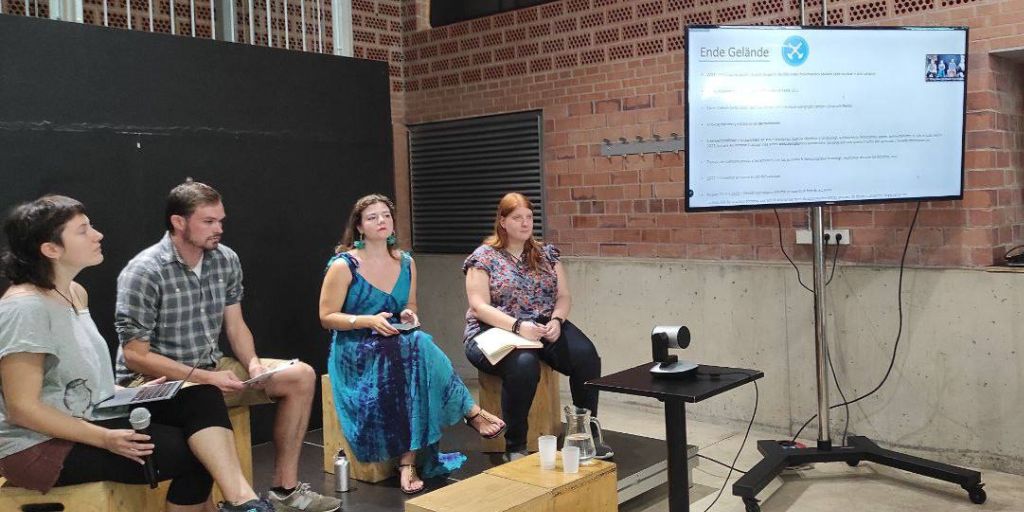
Conference about H2Med in Barcelona
Event | 19 September, 2023On Tuesday 19 September, the Debt Observatory in Globalization held an international meeting altogether with the Gas No es Solución network in connection with the Spanish Presidency of the Council of the EU.
Read more
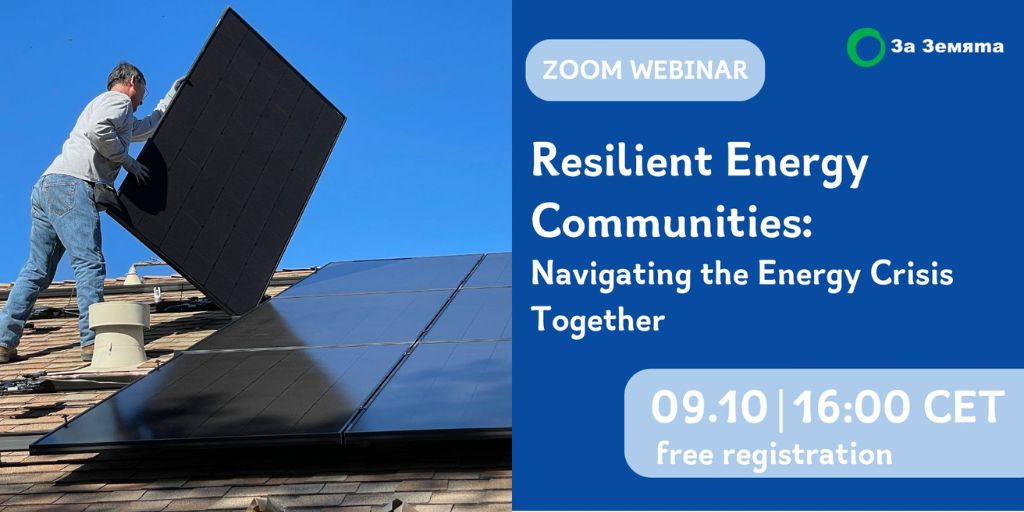
Webinar ‘Resilient energy communities: Navigating the energy crisis together’
Event | 9 October, 2023Date: 9 October In an era that is marked by energy crises and unprecedented climate and geopolitical challenges, energy communities emerge as a powerful chance for resilience and energy independence. This webinar delved into the critical role of energy
Read more
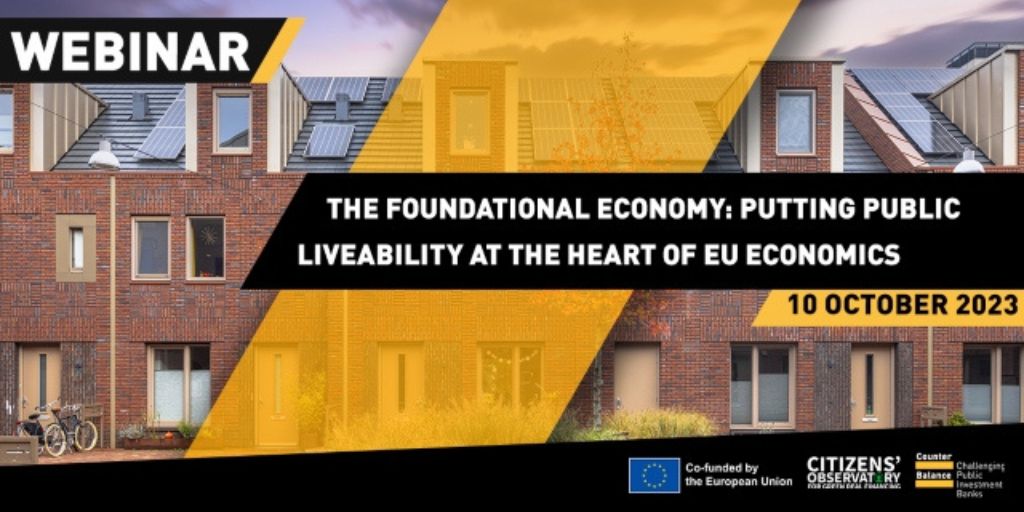
Webinar – The Foundational Economy: Putting liveability at the heart of EU public finance
Event | 10 October, 2023Trickle down economics has failed. Supply-side measures seeking to maintain economic growth in the hope that the benefits reach the public cannot be relied upon to guarantee a dignified life for everybody in Europe.
Read more
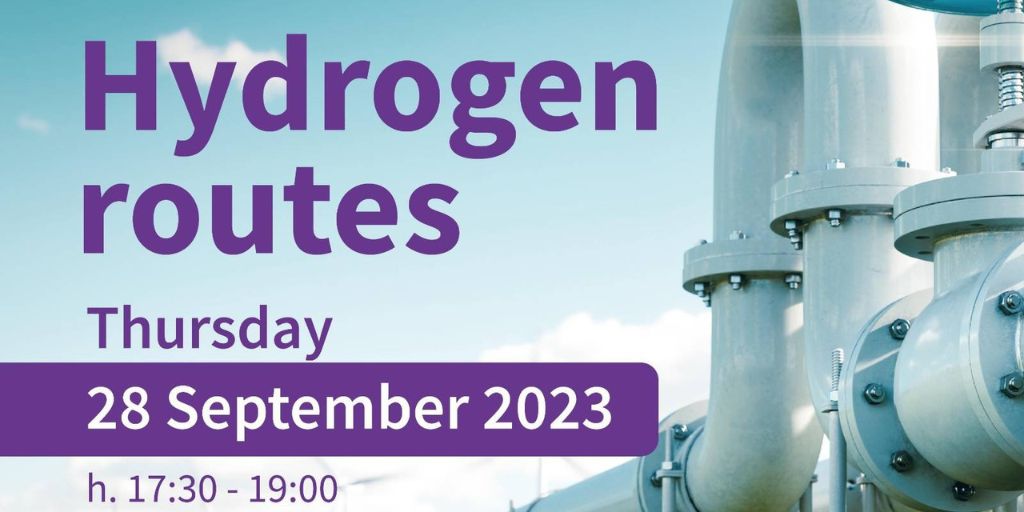
Webinar ‘Hydrogen routes’
Event | 28 September, 2023Webinar ‘Hydrogen routes’ Date: Thursday 28 September 2023 The European hydrogen strategy is closely aligned with the demands of the Hydrogen Europe lobby group, including the targets and investments needed for hydrogen both inside and outside the Unio
Read more
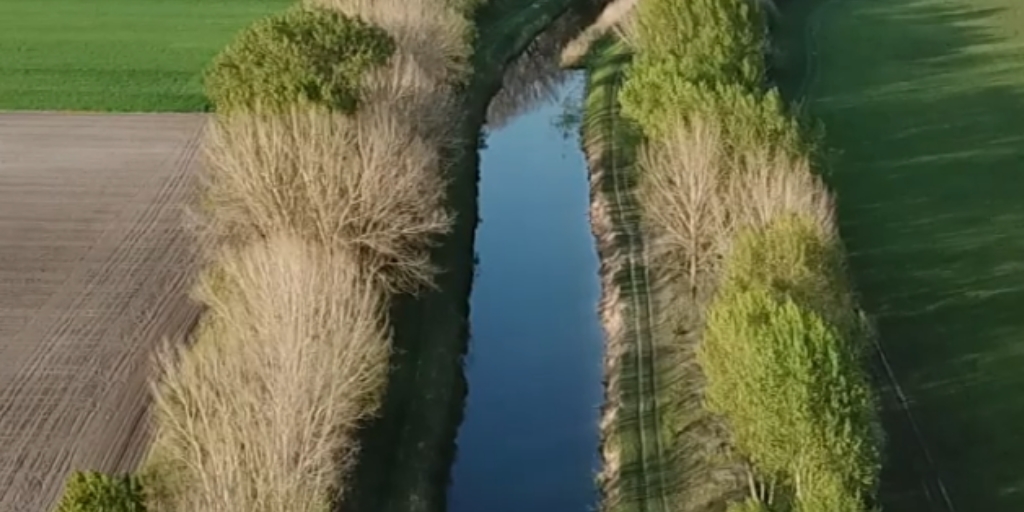
Webinar ‘Towards the garden of Eden: how the water management and agricultural sectors can promote land use change in the Great Hungarian Plain’
Event | 21 September, 2023Online webinar organised by the National Society of Conservationists – Friends of the Earth Hungary.
Read more
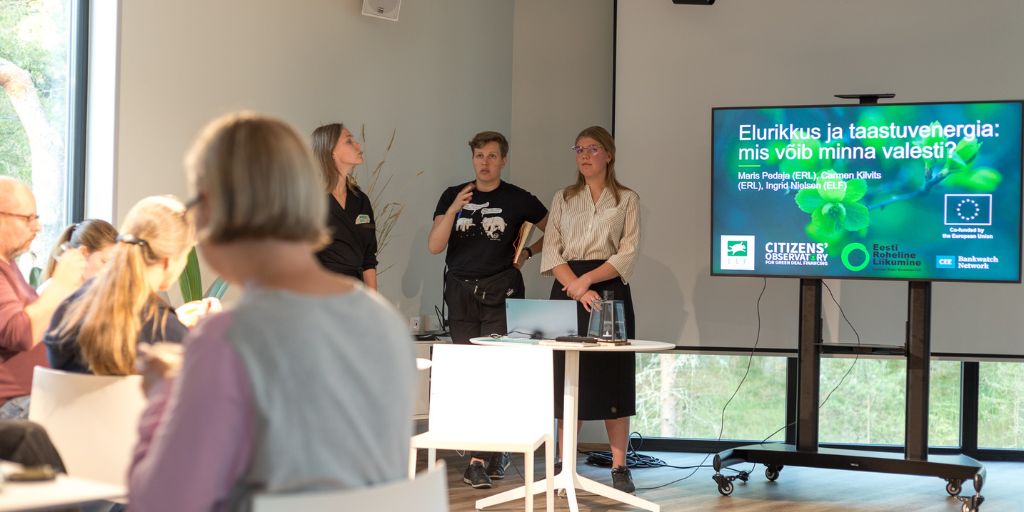
Climate Network’s Summer Seminar
Event | 23 August, 2023The Climate Network’s Summer Seminar brought together experts and enthusiasts from 13 civil society organisations to discuss and share knowledge about climate change and a sustainable future.
Read more
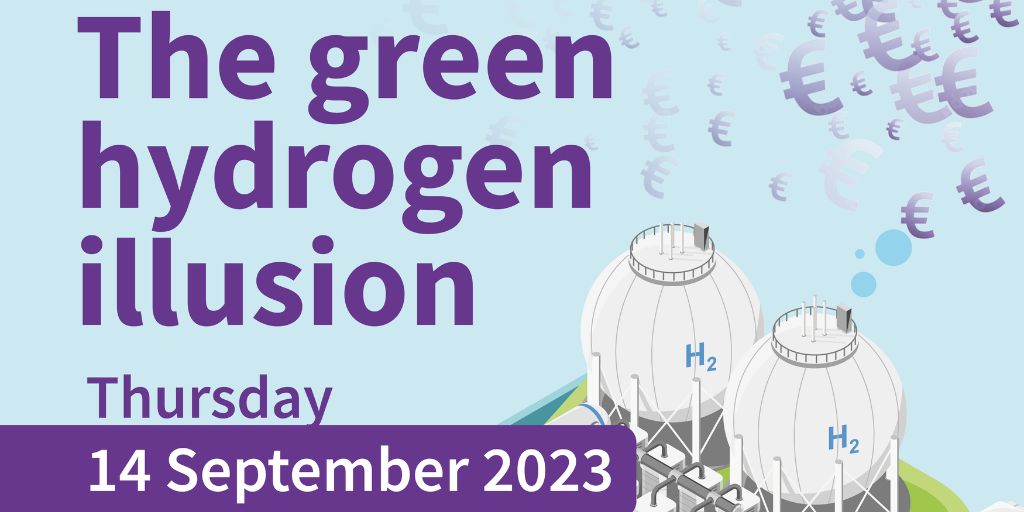
Webinar ‘The green hydrogen illusion’
Event | 14 September, 2023In the first of this webinar series, we will present the technical limits of this ‘new solution’, with an overview of the public funding sources that will flow directly to fossil companies to feed the hydrogen bubble.
Read more

How to tackle energy poverty? Efficient investments and measures
Event | 26 July, 2023In the European Union, energy poverty is impacting numerous citizens and is becoming increasingly acknowledged as a major concern for policymakers. According to Eurostat, around 7 per cent of the population of the European Union experienced energy poverty in 2021.
Read more
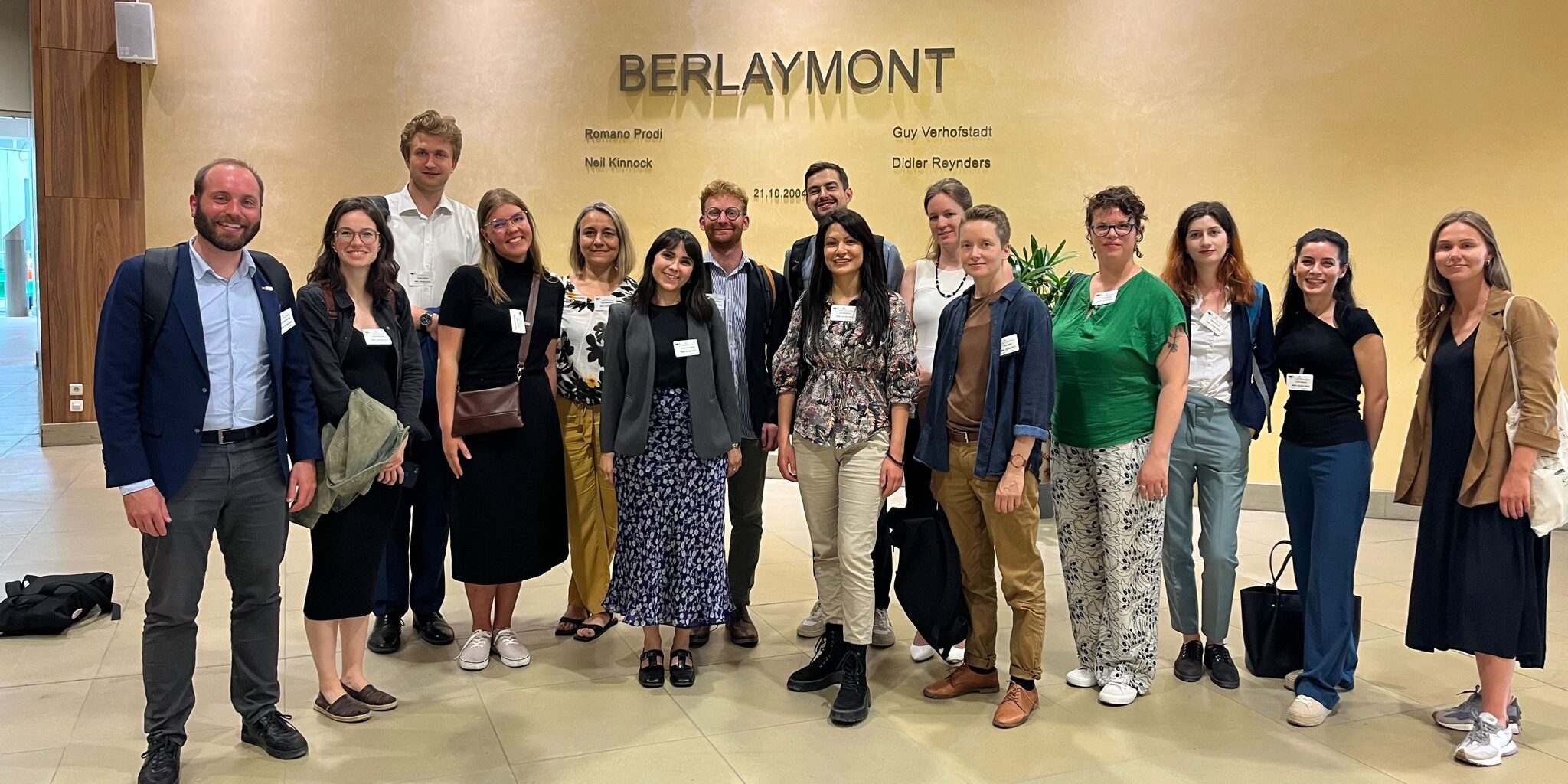
Citizens’ Observatory on Green Deal Financing advocacy and planning week
Event | 26 June, 2023A total of 25 participants from environmental organisations representing 13 countries met in Brussels for an advocacy week. The week also included a discussion on the next steps of Citizens’ Observatory of Green Deal Financing project from 26 till 30 June.
Read more
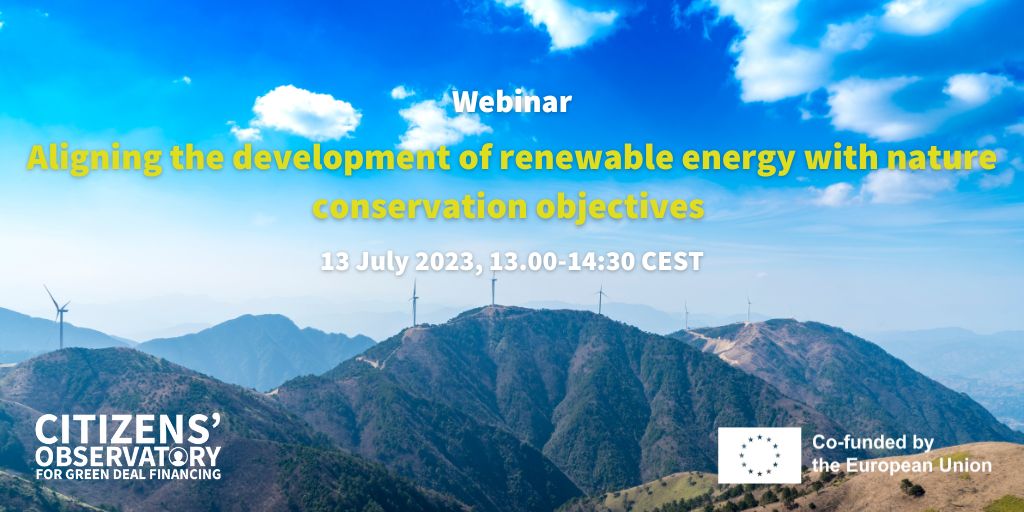
Aligning the development of renewable energy with nature conservation objectives
Event | 13 July, 2023This webinar aimed to discuss how the recent changes to the EU’s renewable energy policy, coupled with the vast funds now available through the EU’s recovery funds, can still ensure the development of renewables are in line with nature conservation objectives.
Read more
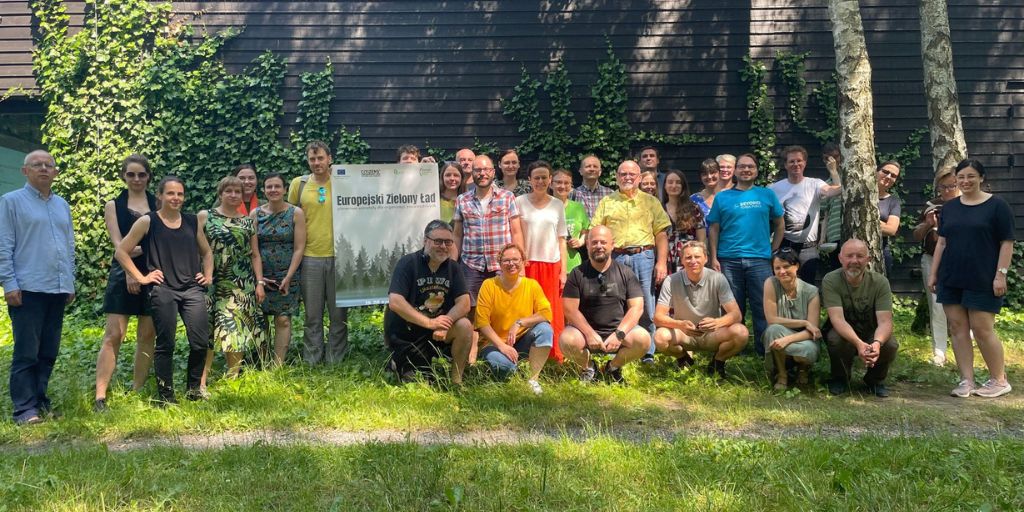
European Green Deal – workshop for NGOs
Event | 20 June, 2023The event was dedicated to NGOs focused on the European Green Deal (EGD) and European funds. It aimed to provide representatives of civil society, particularly members of monitoring committees, with crucial knowledge of EU funds and their alignment with the EGD.
Read more
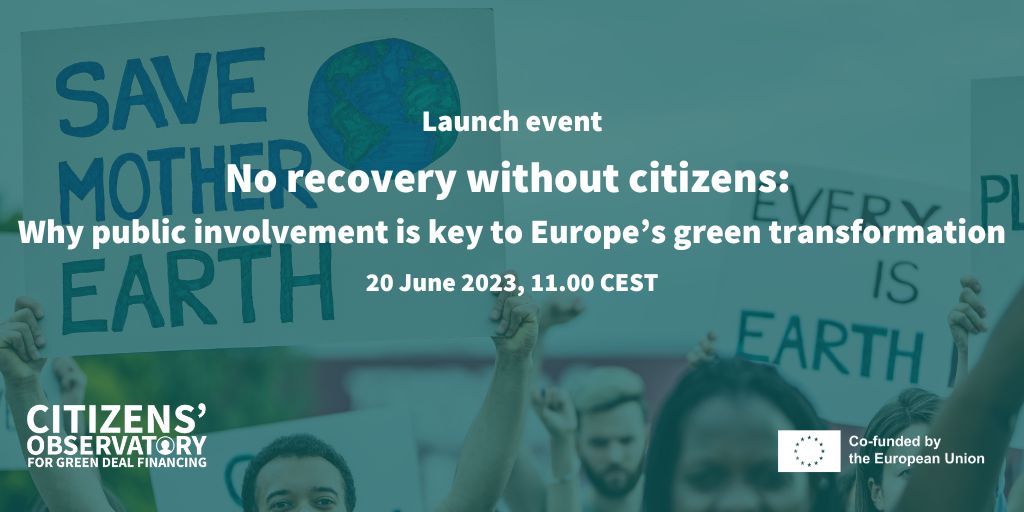
Report launch ‘No recovery without citizens: why public involvement is key to Europe’s green transformation’
Event | 20 June, 2023The report shows how Europe’s recovery is not delivering the green transformation because citizens have been marginalised from the design and implementation of these investments. It is published by the Citizens’ Observatory for Green Deal Financing coalition.
Read more
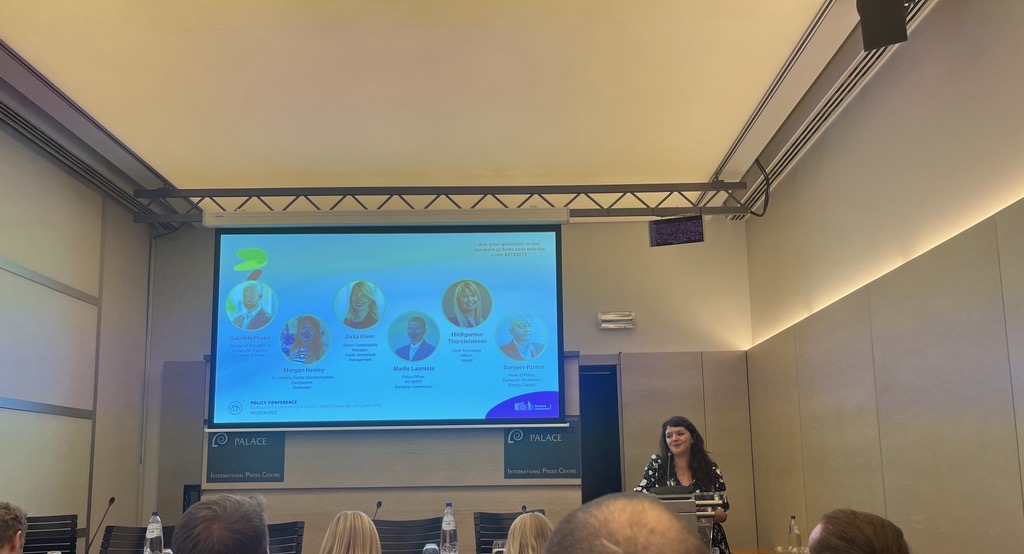
Fast-tracking the clean heat transition: leveraging private capital
Event | 21 July, 2023On Wednesday, 21 June CEE Bankwatch Network co-organised an event together with Euroheat and Power, with the title ‘Fast-tracking the clean heat transition: leveraging private capital’. The session was held as part of the European Sustainability Energy Week organised by the European Commission, and took place at the Residence Palace, in Brussels.
Read more

Debt: Let’s organise against a new wave of green-colored austerity
Event | 10 June, 2023On 10 June, the Debt Observatory in Globalization held a meeting between international networks and activists from different fields to discuss the relationship between debt and the current moment, the different struggles and how it is present in our daily lives.
Read more
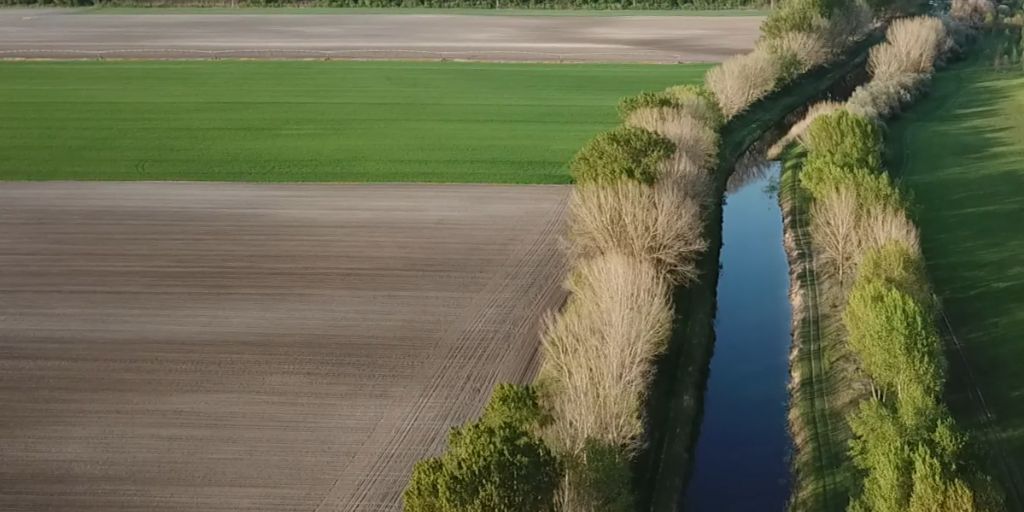
Garden of Eden or desert? Water retention in the Great Hungarian Plain and the Recovery Facility
Event | 12 June, 2023The 2022 drought demonstrated what experts have known for years, that Europe’s next crisis will be water. Ill-considered water management practices, damming, irrigation, and overuse of subsurface water have damaged entire landscapes on our continent.
Read more
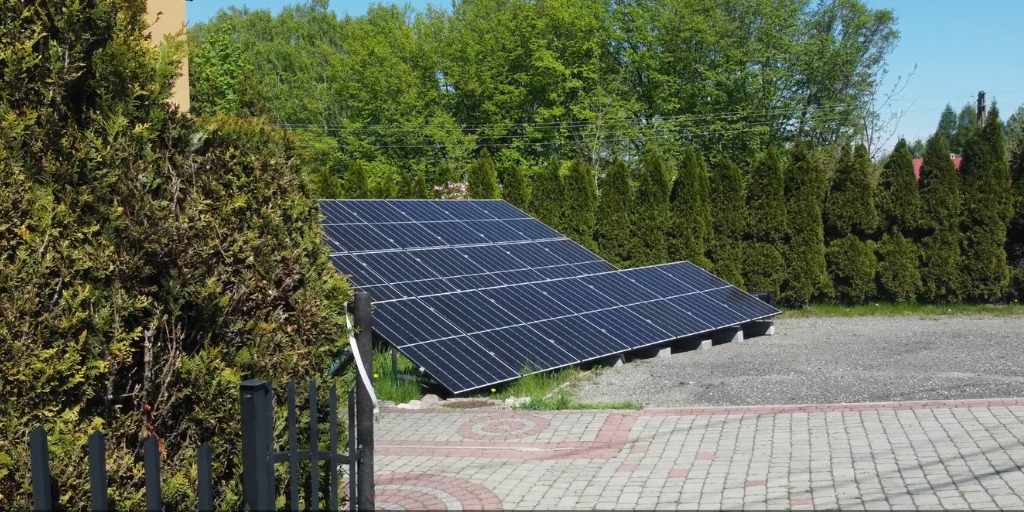
Social perspectives of the Polish recovery plan: New Energy for Energy Cooperatives
Event | 6 June, 2023Polish Green Network will present the documentary titled ‘The New Energy’. People depicted in the documentary are planning or operating energy communities. They face many bureaucratic and legal obstacles while seeking financial aid for their investments. Will the Polish recovery plan help them? Does the government’s plan sufficiently address the needs of emerging energy communities in Poland?
Read more
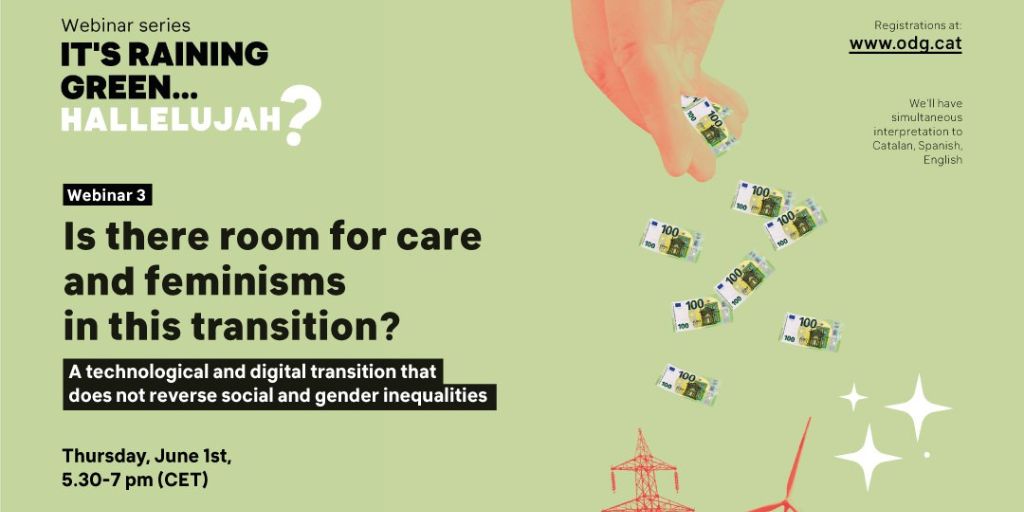
Is there room for care and feminisms in this transition?
Event | 1 June, 2023Although one of the main triggers of the current crisis was the health emergency resulting from COVID-19, three years later we seem to have forgotten the consequences of underfunded and privatised public health and care services when it comes to dealing with a global pandemic. Moreover, it is not just that they are unprepared for an emergency like 2020, but that across Europe, public services are being progressively dismantled in favour of large private companies.
Read more
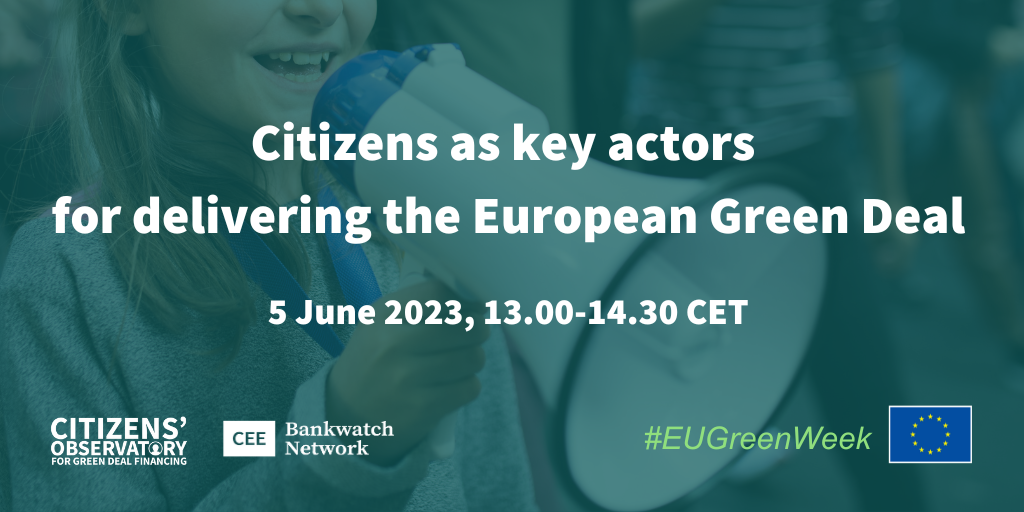
Webinar ‘Citizens as key actors for delivering the European Green Deal’
Event | 5 June, 2023Join us for a webinar that will showcase how citizens can become part of EU funds’ decision making and ensure these are used to deliver the transformation needed. The session will cover the role of EU citizens as watchdogs, and how and why they are key actors in achieving the goals of the European Green Deal.
Read more
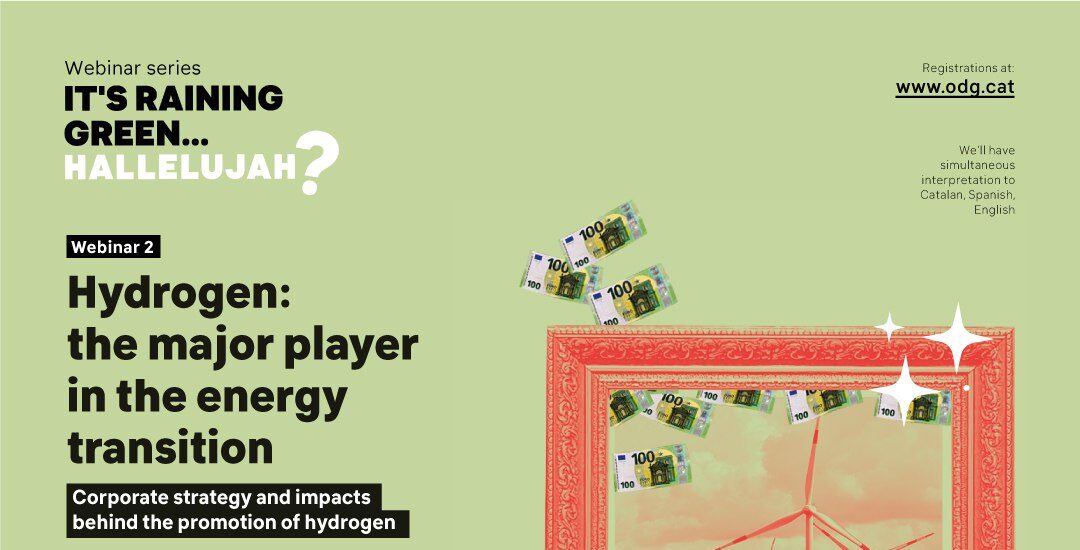
Hydrogen: the major player in the energy transition
Event | 22 May, 2023In the desire to decarbonise the economy and production, there is one element that resonates above all else: green hydrogen. In order to develop it, the aim is to reproduce the same transport and consumption model as with fossil gas and, for this reason, the European Union, the Spanish state and countries of the Global South have developed their roadmaps to make hydrogen a reality.
Read more
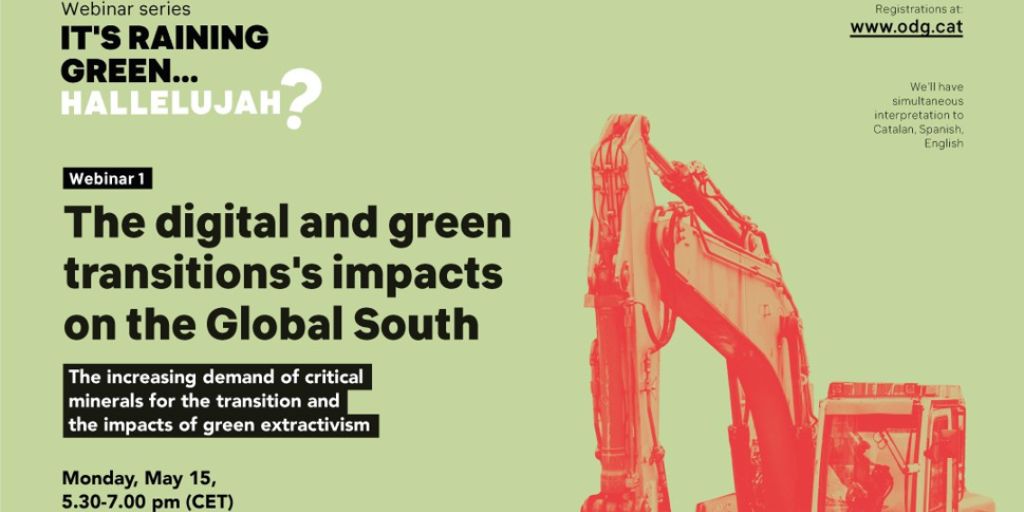
The digital and green transitions’ impacts on the Global South
Event | 15 May, 2023The twin transition, green and digital, is being put forward within the European institutions as a central solution to combat the climate emergency. This technology-based transition – renewables, electric vehicles, green hydrogen, digitalisation – requires critical and strategic materials that are spread around the world.
Read more

Meeting with the EIB complaints mechanism and advocacy meetings with MEPs and the European Commission on the EIBs role in financing the European Green Deal
Event | 3 May, 2023On 3 May Counter Balance and several members and partners of their network participated in a meeting with a significant number of staff of the EIBs Complaints mechanism of the European Investment Bank at their office in Luxembourg.
Read more
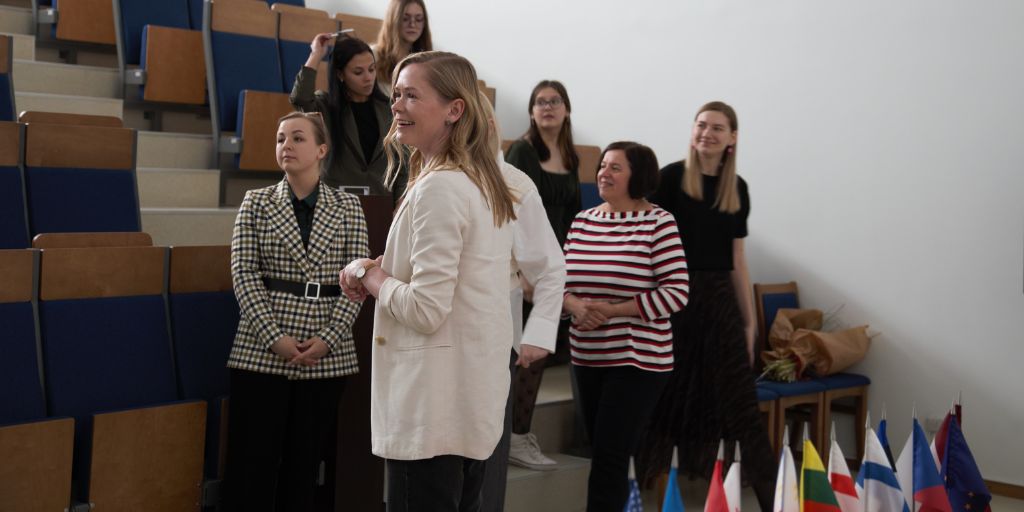
Protection of Environmental interests: Green light to be heard!
Event | 20 April, 2023Two seminars for young people and one seminar for educators and local activists were organised, where participants could learn about the existing opportunities of civil engagement and public participation in the decisions made by municipalities, the government of Latvia. They also heard the summary of experiences of environmental organisations on how to influence expenditure of public finances and EU funds in a climate, environment and biodiversity-friendly direction.
Read more
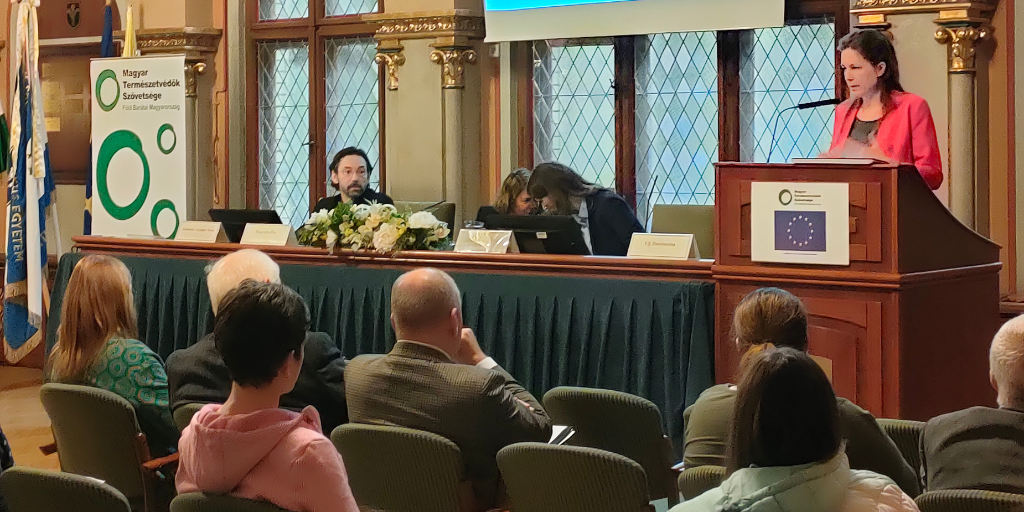
The European Green and Biodiversity Workshop and Conference
Event | 14 April, 2023The event was jointly organised by the Office of the Commissioner for Fundamental Rights’ Secretariat for Future Generations, the Department of Environmental Law and Competition Law of Pázmány Péter Catholic University, and the National Society of Conservationists (MTVSZ).
Read more
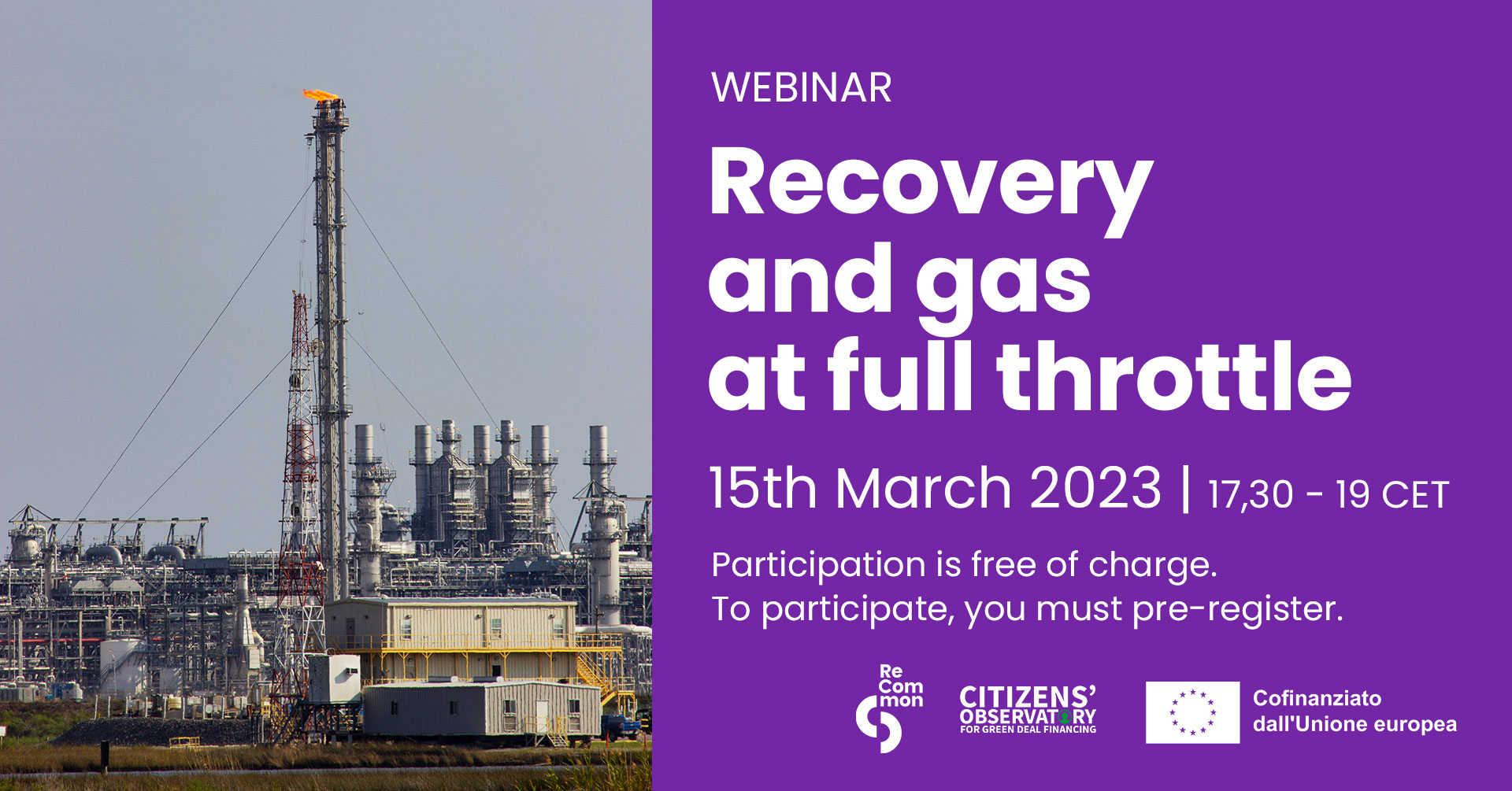
Recovery and gas at full throttle
Event | 15 March, 2023The webinar ‘Recovery and gas at full throttle’ was organised to reflect and debate on the REPowerEU plan that encourages Member States to add several new LNG terminals and pipelines, opening up the possibility of using various chapters of the European budget to finance them and allowing for a derogation from the ‘do no significant harm’ principle.
Read more

Want to advocate for the environment? It’s not as hard as it sounds!
Event | 3 March, 2023At the beginning of 2023, Green Liberty announced 2023 as the Year for Environmental Advocacy in Latvia. 38 active people, emerging environmentalists and members of various organisations met in a full-day opening event on 3 March 2023 in Riga to explor
Read more
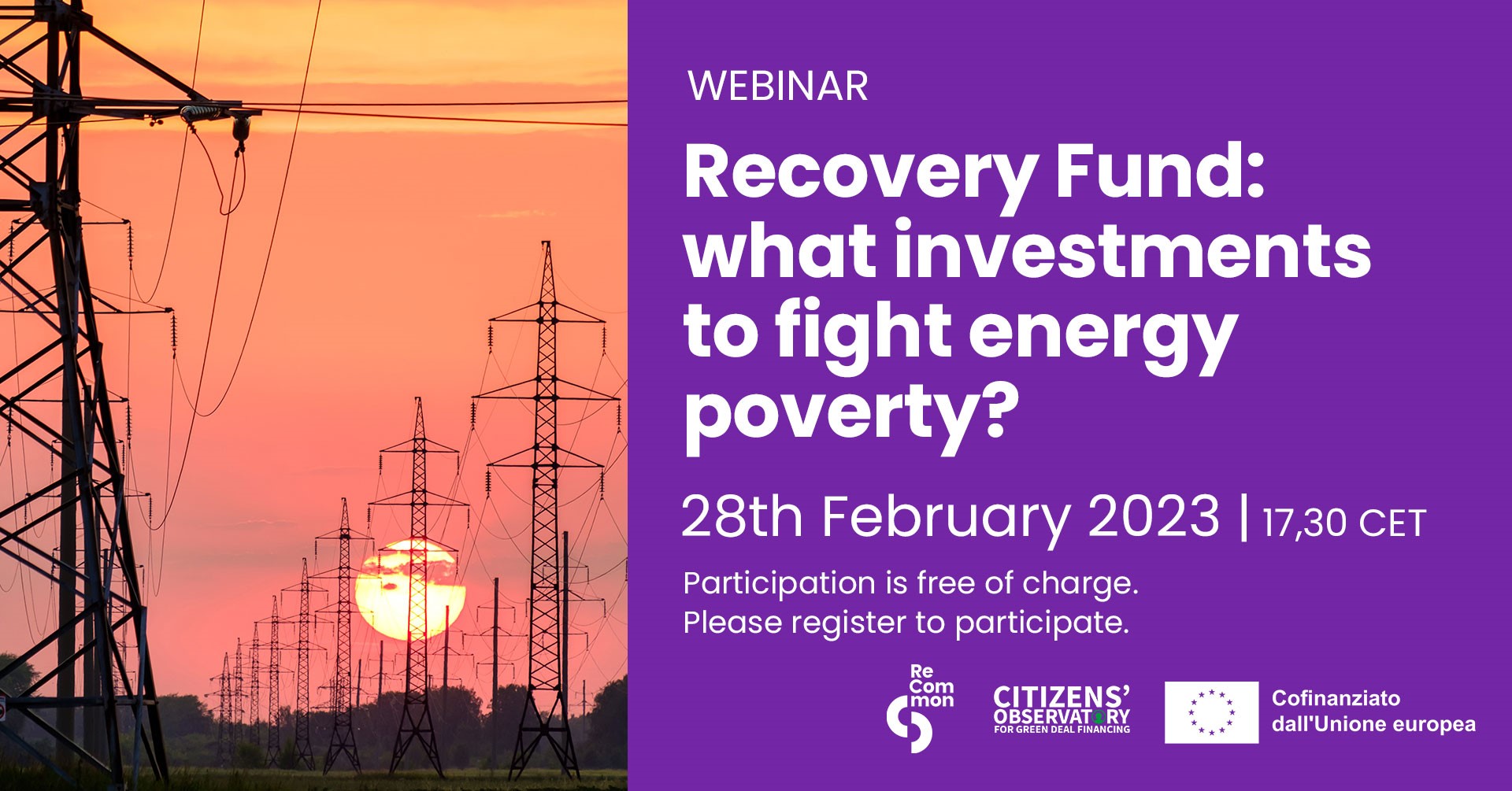
Recovery Fund: what investments to fight energy poverty?
Event | 27 February, 2023Public investments proposed by governments should address energy poverty by ensuring affordable energy prices, energy efficiency improvements, energy savings and social inclusion. Are there good practices that manage to combine these dimensions? What investments do we need to respond to this urgency?
Read more
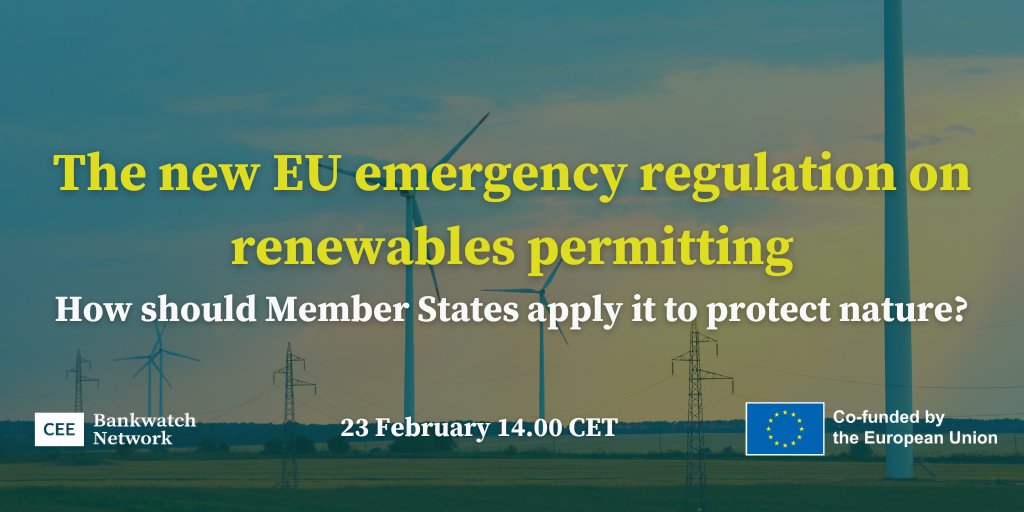
The new EU emergency regulation on renewables permitting
Event | 23 February, 2023On 23 February participants from various environmental organisations joined the webinar organised by Bankwatch to discuss how to apply the EU’s new emergency regulation on renewables permitting without harming biodiversity.
Read more
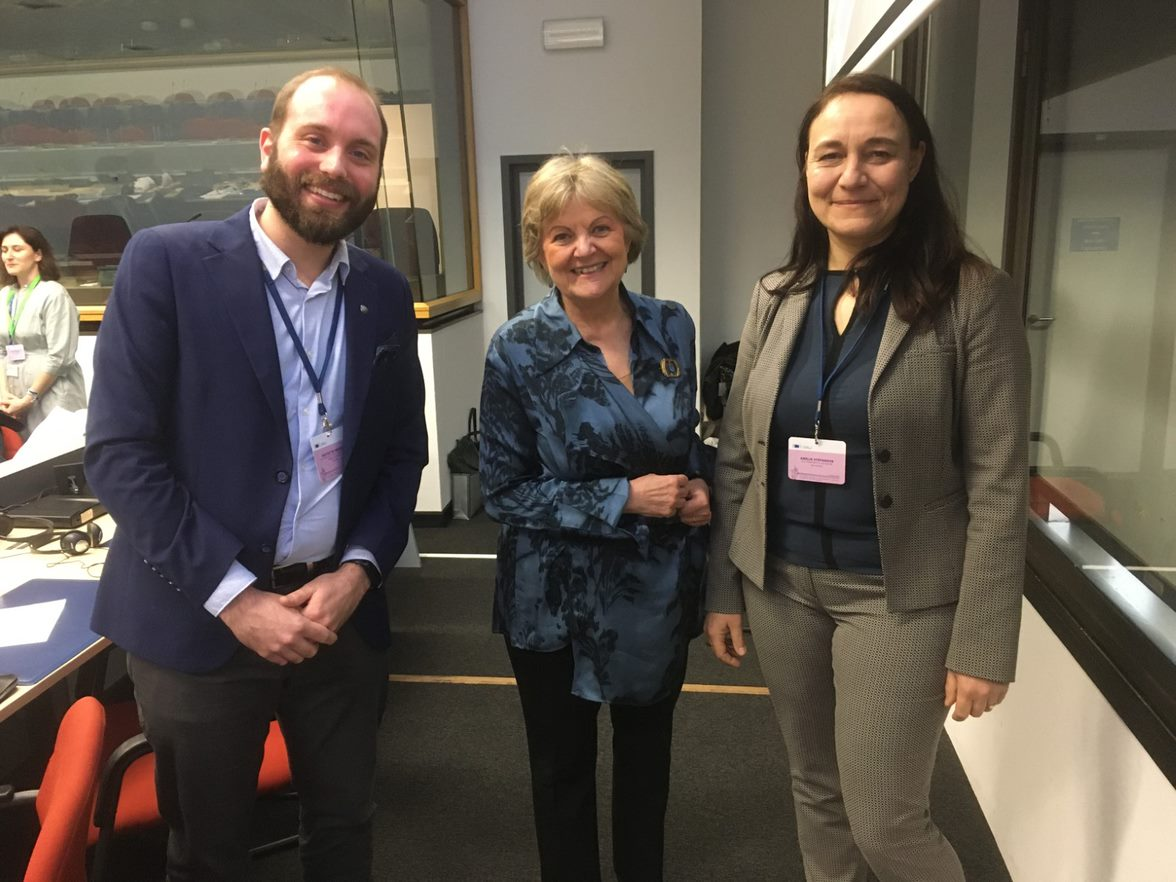
Three days of advocacy meetings in Brussels with the European Commission
Event | 15 February, 2023CEE Bankwatch Network organised a lobby week in Brussels from 15 to 17 February, where campaigners from five environmental organisations and five central and eastern European countries joined the plenary meeting of the European Community of Practice on Partnership (ECoPP), a platform launched by the European Commission in 2022.
Read more
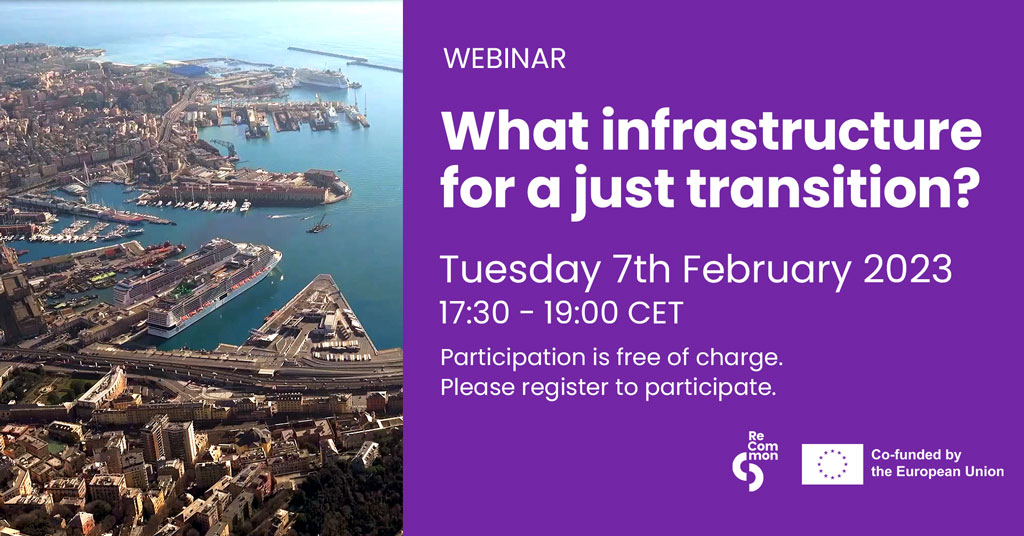
What infrastructure for a just transition?
Event | 7 February, 2023During this meeting, we will look at two major Italian infrastructure: the new breakwater in Genoa, funded by the Italian RRP, and the widening of the Bologna highway bypass, a public infrastructure presented as a symbol of ecological transition.
Read more
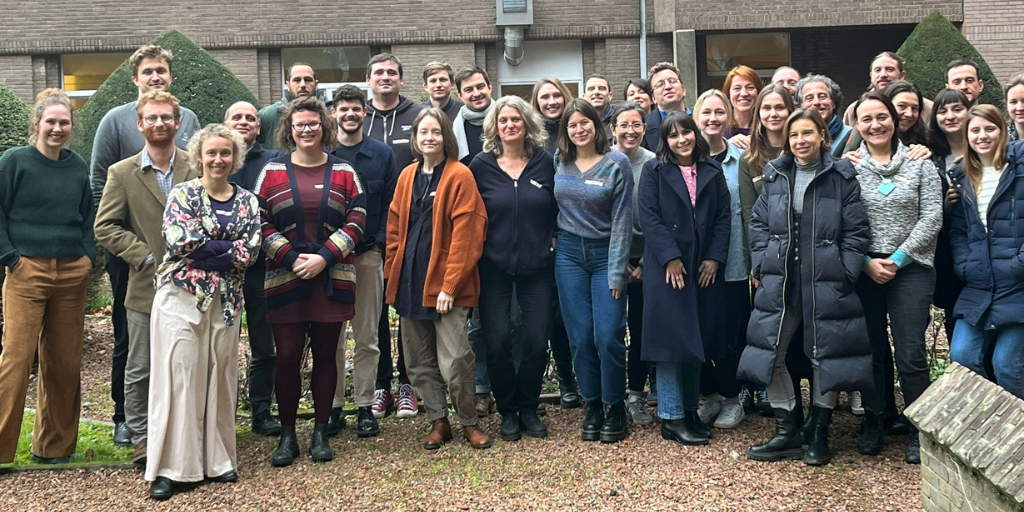
Citizens’ Observatory on Green Deal Financing Kick-off event
Event | 26 January, 2023The Citizens’ Observatory on Green Deal Financing kick-off event took place on 23-26 January 2023 in Belgium, Brussels. The event was organised to bring together project partners and other organisations interested in working together on monitoring EU funds and advocating for more transparency and public participation in Member States. 35 participants from 16 countries attended the event.
Read more
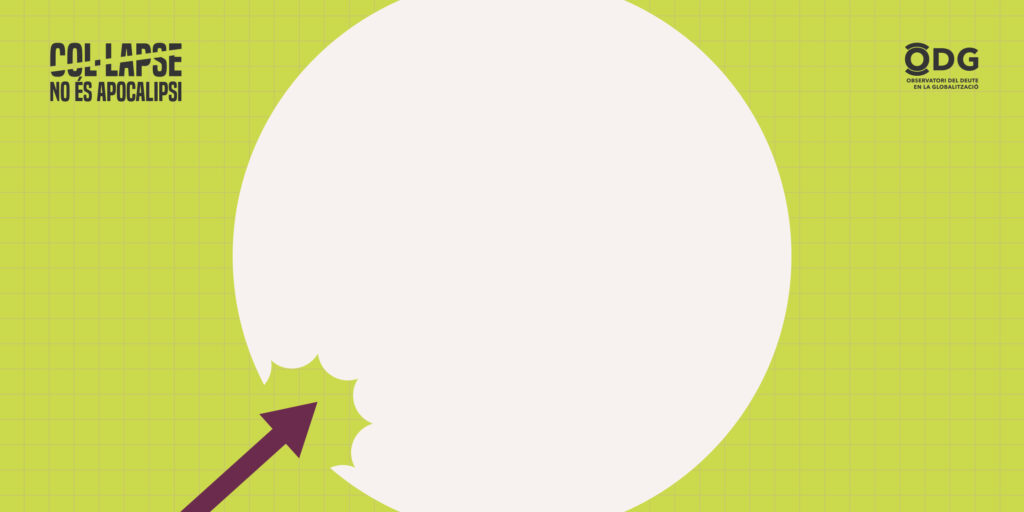
Public discussion ‘Collapse is not apocalypse’
Event | 21 November, 2022ODG organised a series of talks and sessions in connection with a reading group of the book ‘Collapse. Terminal capitalism, ecosocial transition and ecofascism’ by Carlos Taibo.
Read more


